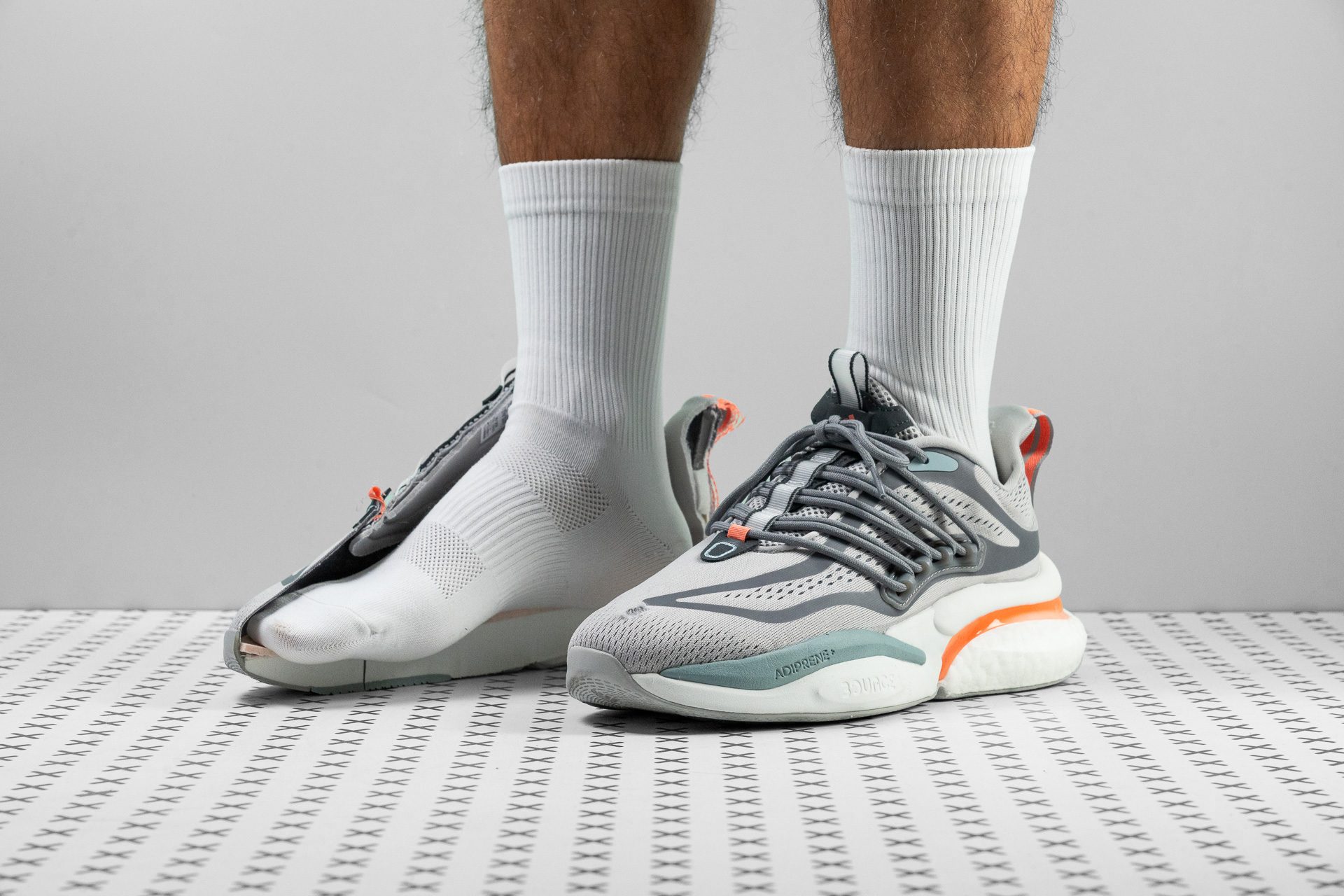Our verdict
Pros
- All-day comfort
- Springy ride
- Well-cushioned
- Great for casual runs
- Smooth heel-to-toe transitions
- Amazingly stable platform
- Futuristic look
- Versatile for many activities
Cons
- Largely inflexible structure
- Flimsy heel hold
Audience verdict
Comparison
The most similar sneakers compared
+ + Add a shoe | |||||
|---|---|---|---|---|---|
| Audience score | 90 Good! | 90 Good! | 93 Great! | 88 Good! | |
| Price | $120 | $185 | $150 | $100 | |
| Style | SportyFuturisticChunky | ClassicSporty | ClassicSportyFuturisticChunky | RetroSporty | |
| Shock absorption | - | - | Moderate | - | |
| Energy return | - | - | Moderate | - | |
| Traction | - | - | High | - | |
| Breathability | Breathable | Breathable | Moderate | Breathable | |
| Weight lab | 13.2 oz / 373g | 13.9 oz / 393g | 15.1 oz / 427g | 14 oz / 397g | |
| Size | True to size | True to size | True to size | True to size | |
| Midsole softness | Balanced | Balanced | Soft | Balanced | |
| Material | Mesh | LeatherMeshSuede | MeshSuede | MeshSuede | |
| Season | SpringFall | SpringFall | SpringFall | SpringFall | |
| Inspired from | Running | Running | Running | Running | |
| Width / fit | Narrow | Medium | Medium | Medium | |
| Toebox width | Narrow | Medium | Narrow | Medium | |
| Leather/suede quality | - | - | Real suede | Real suede | |
| Toebox durability | Decent | Decent | Decent | Good | |
| Heel padding durability | Decent | Bad | Decent | Decent | |
| Outsole durability | Good | Good | Good | Good | |
| Heel stack lab | 41.8 mm | 34.1 mm | 37.3 mm | 33.5 mm | |
| Stiffness | Stiff | Moderate | Moderate | Stiff | |
| Tongue padding | Average | Average | Average | Average | |
| Drop lab | 13.5 mm | 14.5 mm | 11.3 mm | 10.8 mm | |
| Forefoot | 28.3 mm | 19.6 mm | 26.0 mm | 22.7 mm | |
| Removable insole | ✓ | ✓ | ✓ | ✓ | |
| Heel tab | Finger loop | None | None | None | |
| Torsional rigidity | Stiff | Moderate | Moderate | Stiff | |
| Heel counter stiffness | Flexible | Moderate | Moderate | Stiff | |
| Reflective elements | ✗ | ✓ | ✓ | ✗ | |
| Closure | Laces | Laces | Laces | Laces | |
| Top | Low top | Low top | Low top | Low top | |
| Ranking | #75 Bottom 38% | #76 Bottom 37% | #21 Top 18% | #103 Bottom 14% | |
| Popularity | #113 Bottom 6% | #66 Bottom 45% | #1 Top 1% | #92 Bottom 23% |
Who should buy
After testing it, we believe that the Adidas Alphaboost V1 is an excellent match for:
- Those who want to step up their casual run look with a pair of futuristic-looking shoes that give a smooth and springy ride
- Casual wearers who don't mind using platform shoes
- Those in the market for trainers that are versatile for various workouts
- Sneakerheads who want comfortable shoes that they can use from the streets to the gym
- Fitness enthusiasts who want to feel good and make heads turn when they get caught breaking a sweat
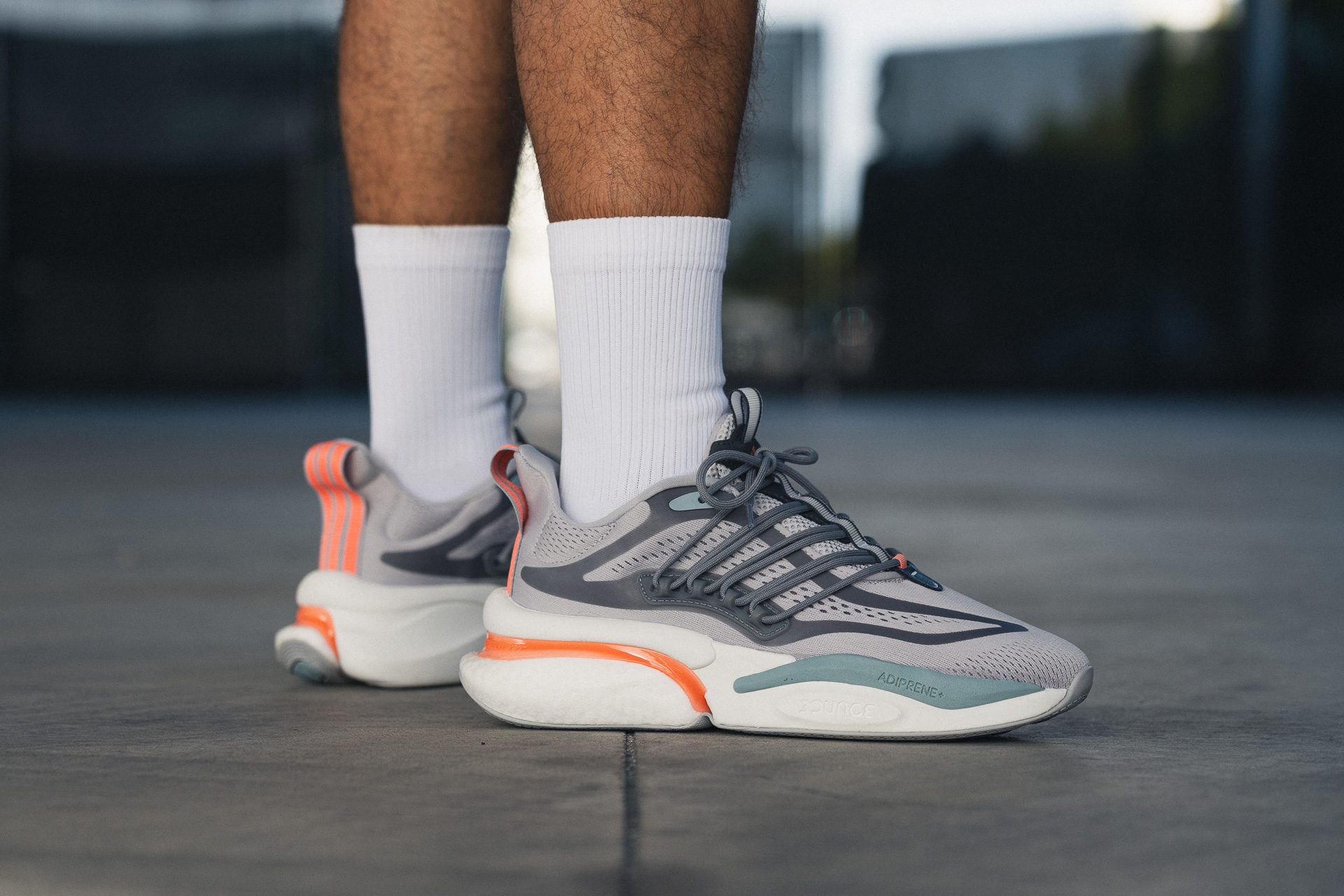
Who should NOT buy
No matter how appealing it is, the Adidas Alphaboost V1 will still turn off sneakerheads who do not like the thick midsoles of platform shoes. Some of us here felt that the extra platform just made the shoe bulkier. The Adidas Superstar might be a better alternative.
We felt that the Adidas Alphaboost V1 was a pretty rigid shoe. Those who like the Alphaboost V1 but are just not so sure about its overall rigidity might want to try the PUMA RS-X. This Puma sneaker is still a platform shoe, only far more flexible.
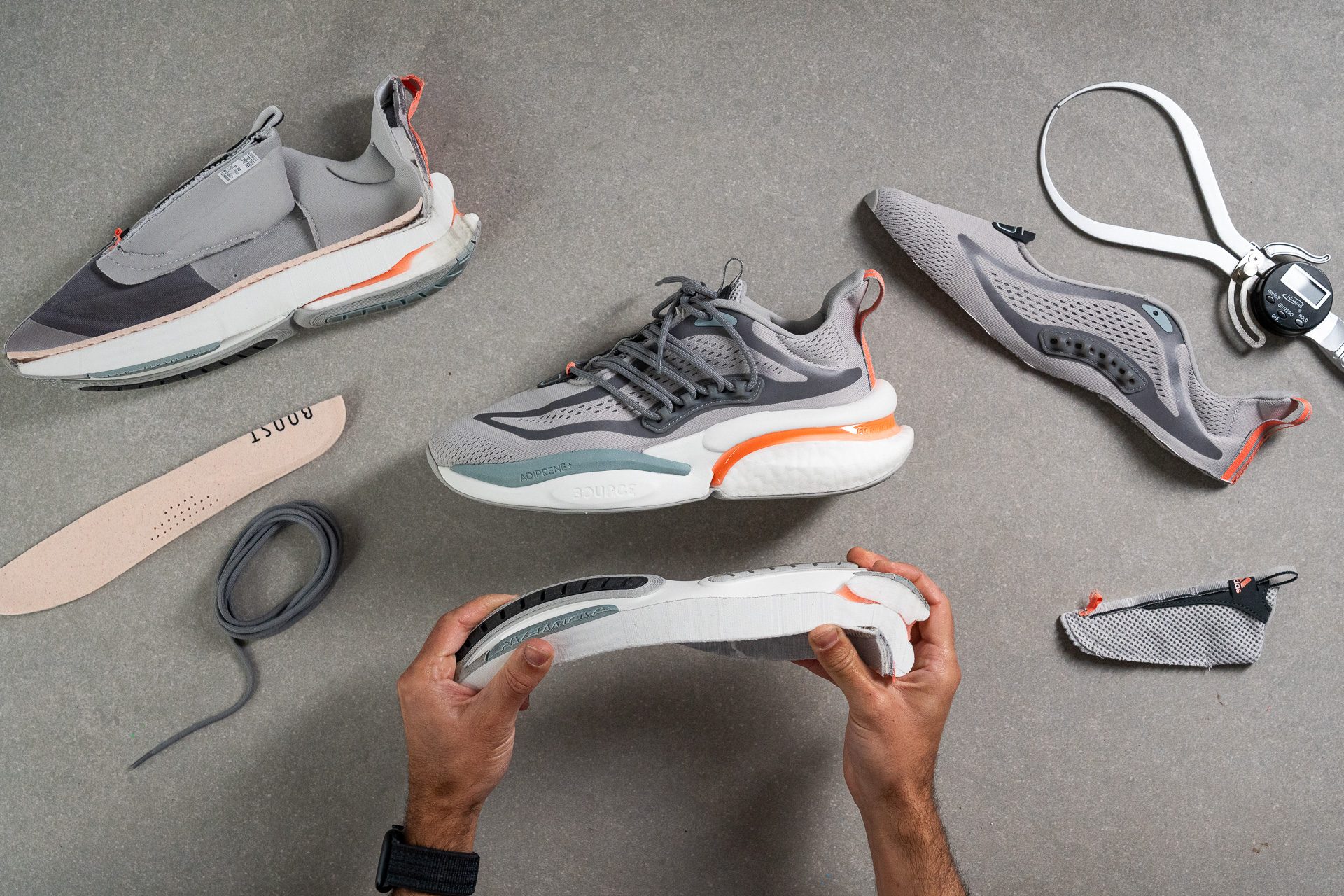
Cushioning
Heel stack
The shoe's huge midsole is easily one of its most prominent features. The heel area is 41.8 mm thick! This number adds 37% more thickness to the average!
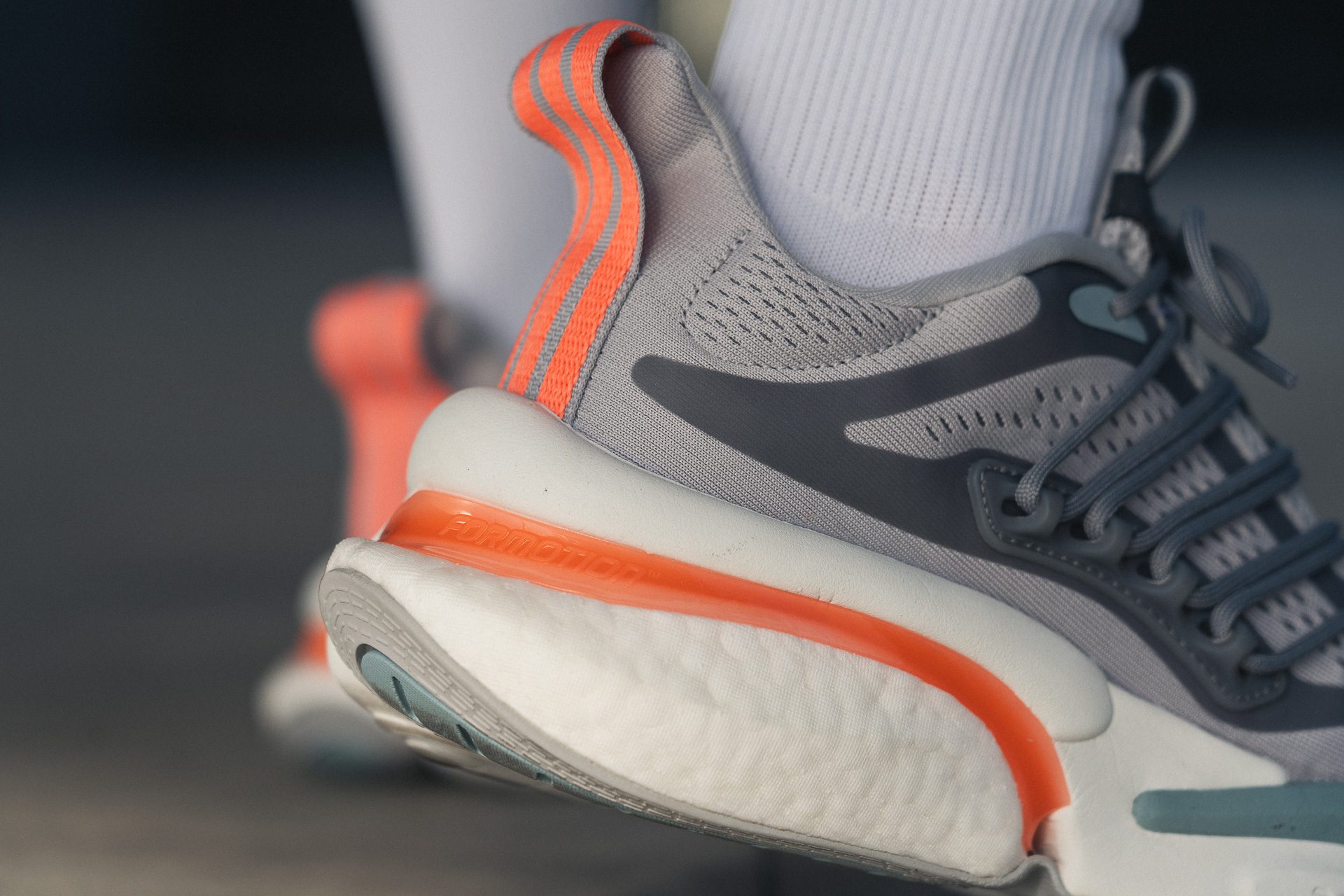
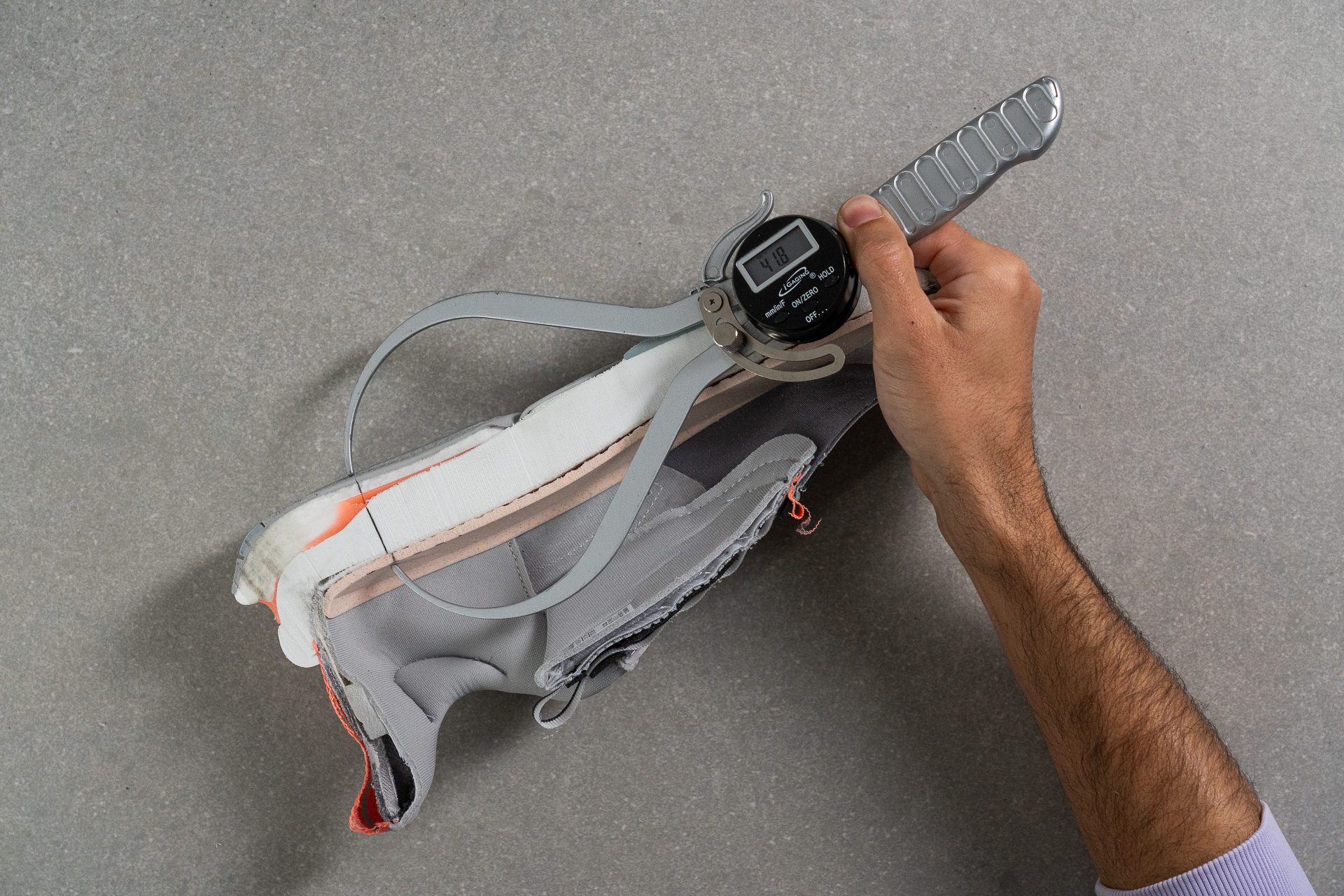
| Alphaboost V1 | 41.8 mm |
| Average | 30.7 mm |
Forefoot stack
Just like the heel, the forefoot also packs up on volume. At 28.3 mm thick, this part of the shoe dwarfs the average by as much as 32%.
The Adidas Alphaboost V1 is definitely the shoe that we will wear if we want to appear taller. It's even better than many of the platform sneakers out there.
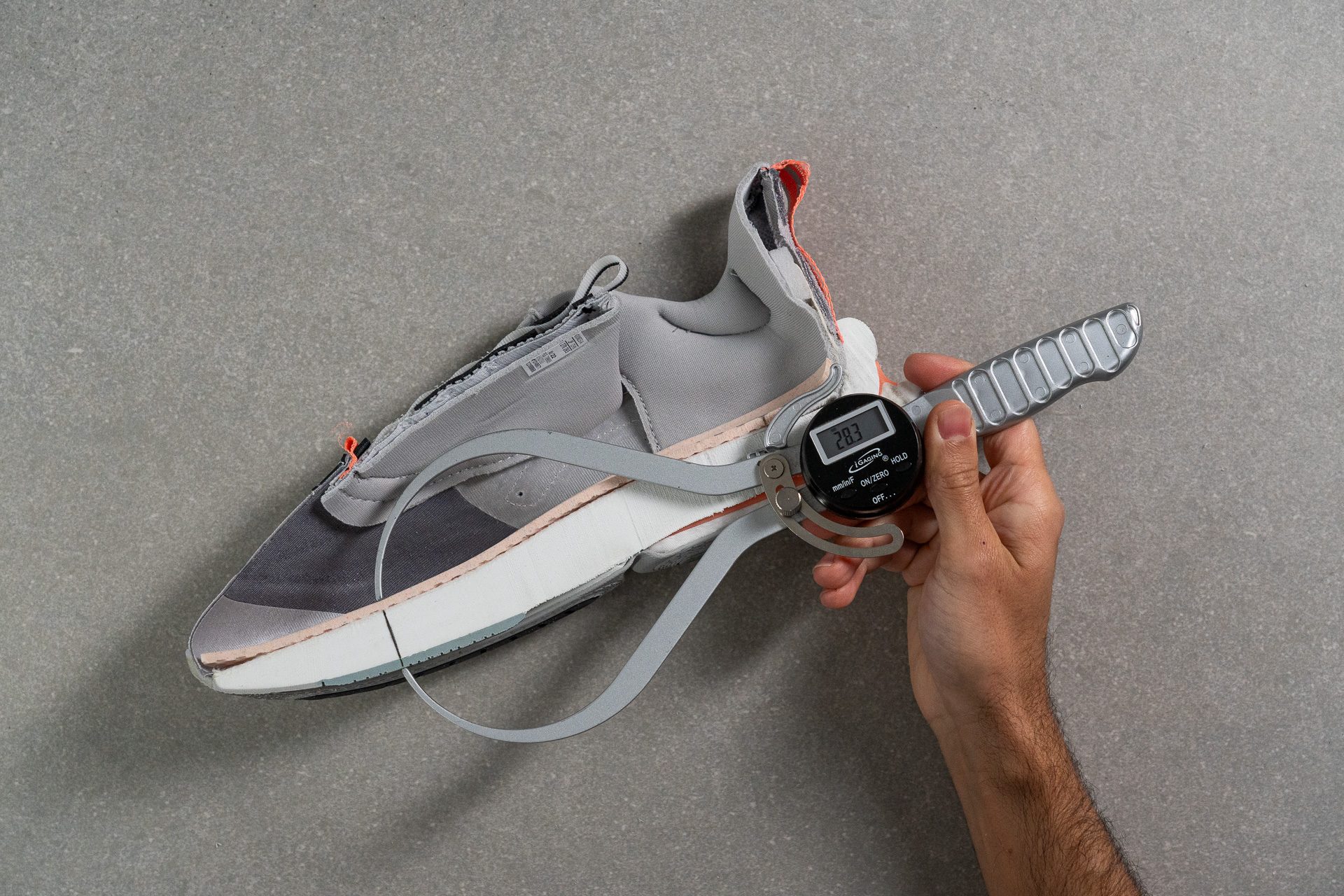
| Alphaboost V1 | 28.3 mm |
| Average | 19.5 mm |
Drop
Though the midsole is a lot thicker, the shoe's heel-to-toe drop remained to be just around the average. Because of this, we did not have issues with heel-to-toe transitions. We can even say that our steps were pretty smooth.
When we did the calculations in the lab, the drop was pegged at 13.5 mm. The Adidas Gazelle is still going to be a better pick for wearers who want more natural-feeling footwear.
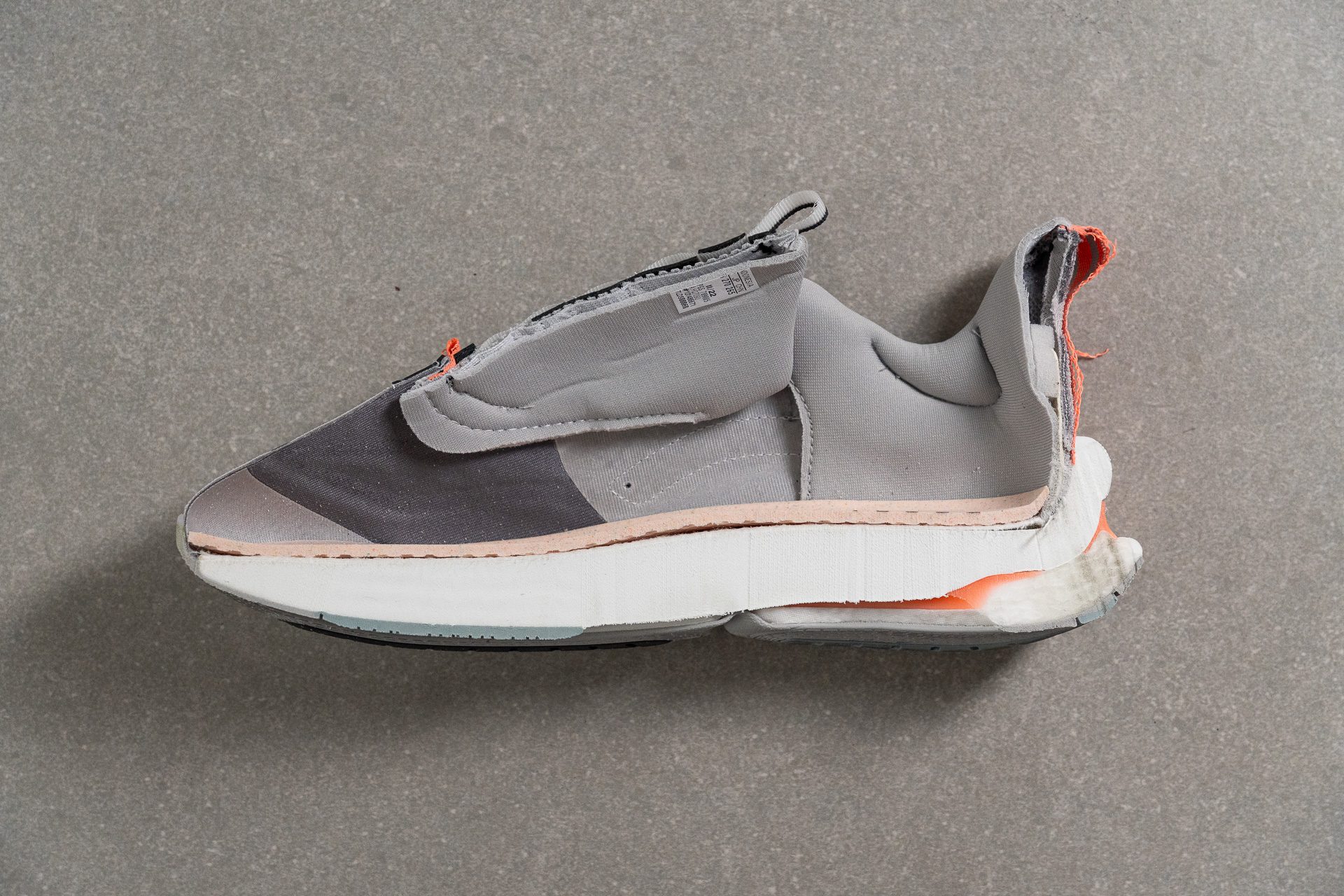
| Alphaboost V1 | 13.5 mm |
| Average | 11.2 mm |
Midsole softness
The shoe's thick midsole felt soft from step one but never too plush to let our feet sink into it. It felt soft enough to provide comfort but still firm enough to ensure much-needed bounce.
Checking the shoe's primary cushioning foam, our HA durometer returned a pretty moderate reading of 22.4. That makes it notably softer than average but still within the balanced range.
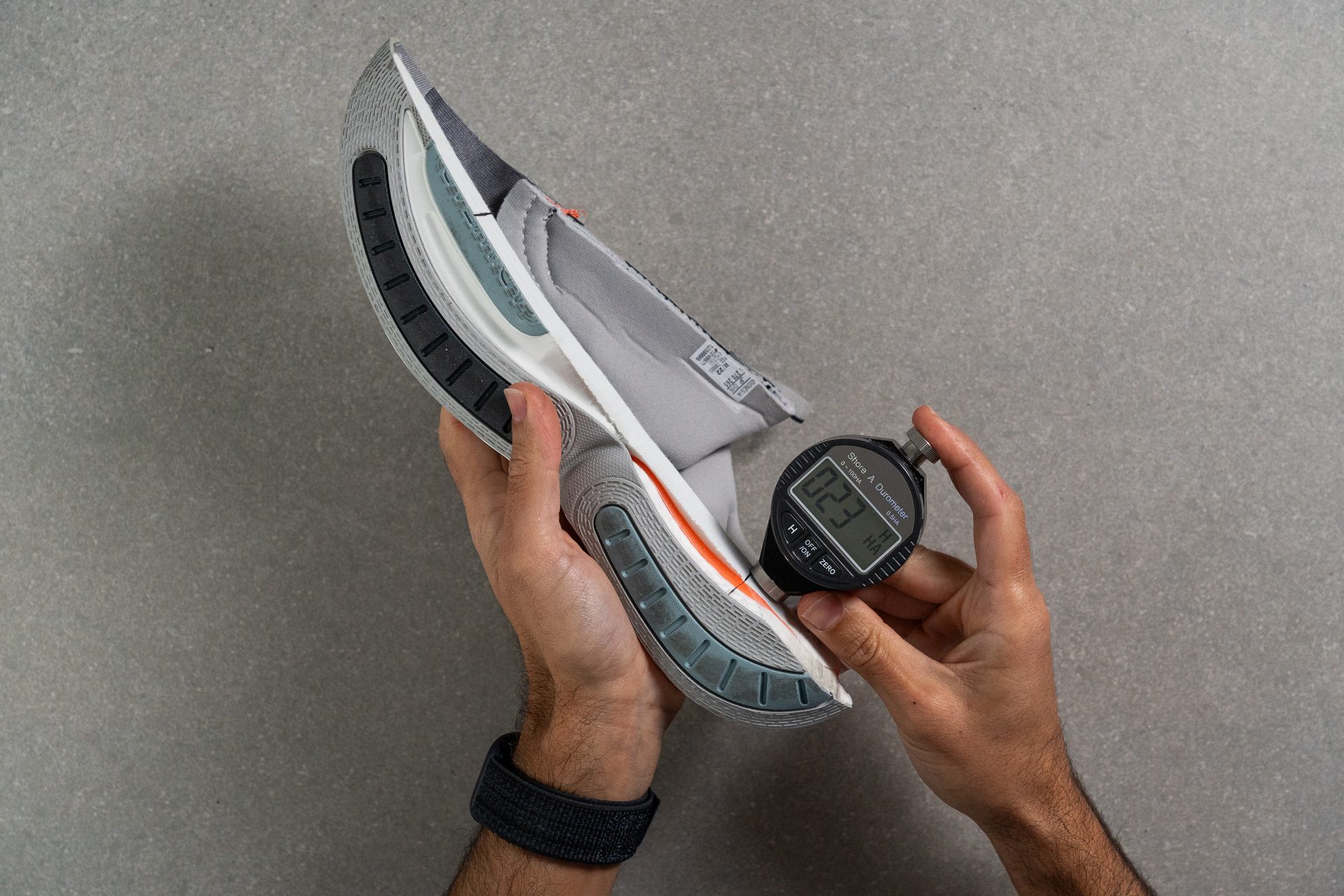
| Alphaboost V1 | 22.4 HA |
| Average | 28.6 HA |
Secondary foam
Contributing to the shoe's soft yet responsive underfoot experience is a piece of Boost foam under the heel. Pressing our durometer against it showed a much lower reading of 13.0 HA. That's what squishmallow feels like, indeed.
But don't worry about the wobbles – this Adidas shoe has enough midsole width and torsional rigidity to keep the ride stable enough without detracting from the cozy heel cushioning.
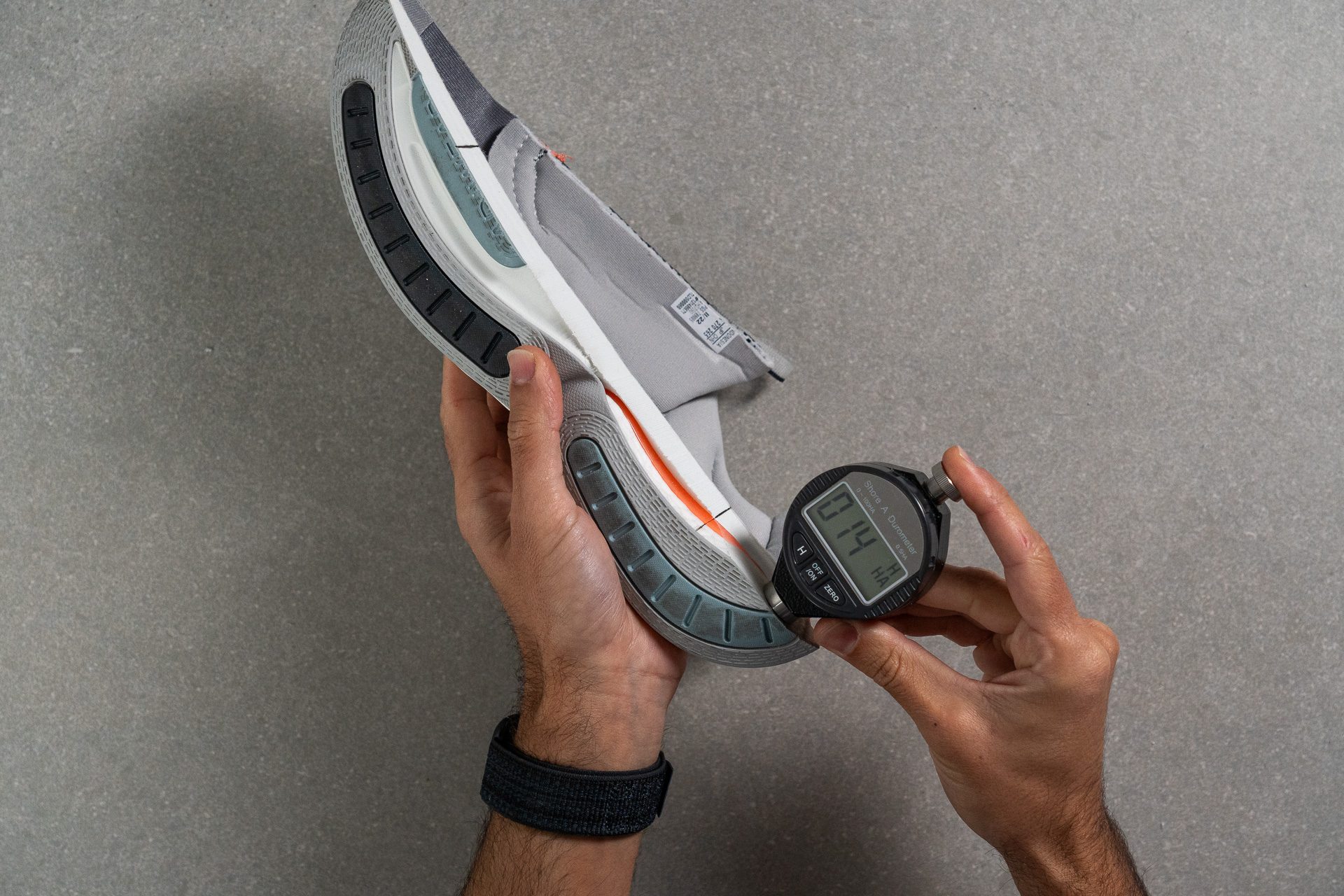
| Alphaboost V1 | 13.0 HA |
| Average | 31.5 HA |
Size and fit
Size
Adidas Alphaboost V1 fits true to size (28 votes).
Internal length
| Alphaboost V1 | 272.3 mm |
| Average | 272.3 mm |
Width / Fit
The widest part of the toebox is only 95.8 mm wide as per our caliper measurements. This number is just around the average, so our recommendation is for those who have normal-sized feet to go true to size. Those who have wider feet may want to size up.
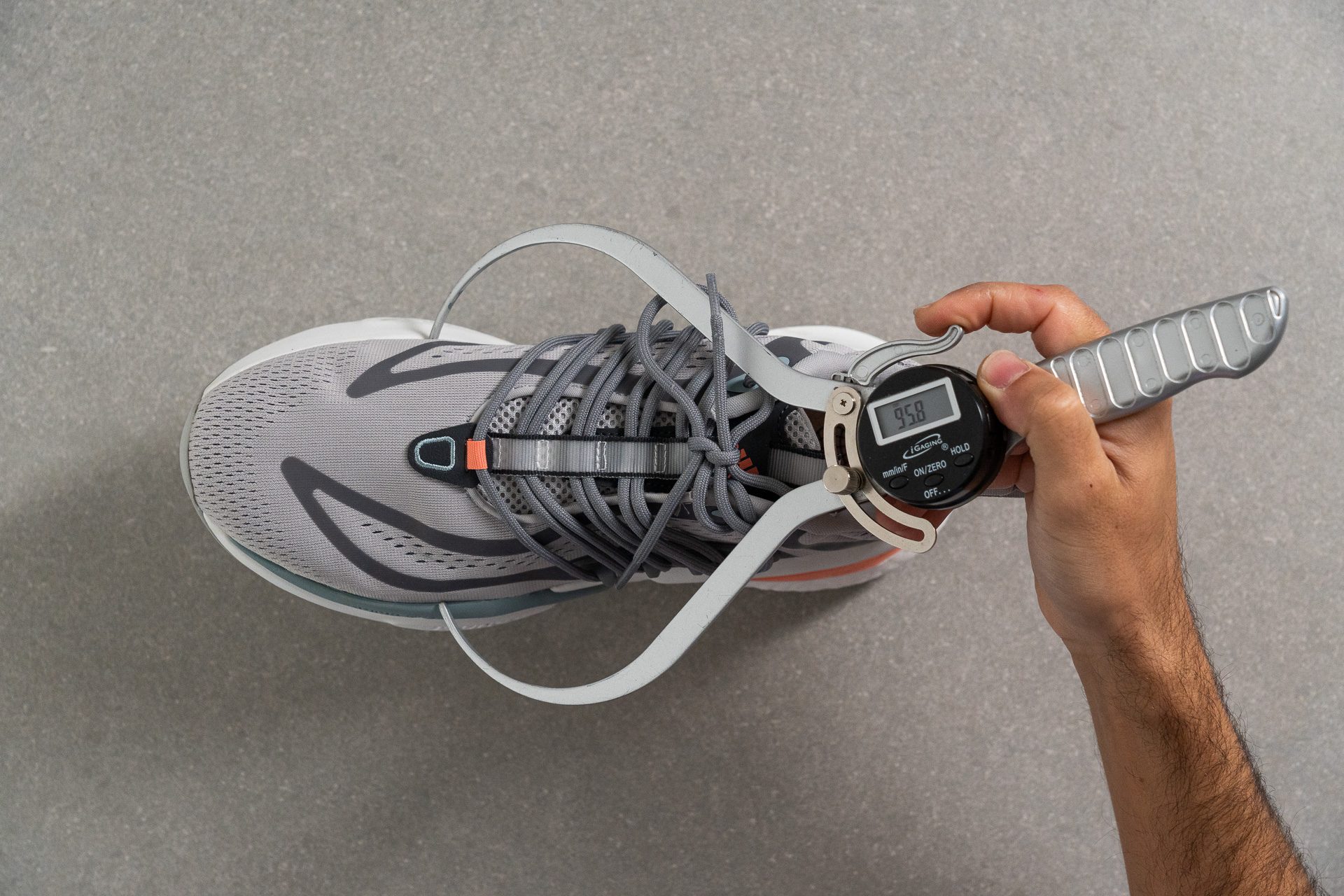
This test follows an older methodology, which is why you don't see recently tested shoes in the chart. Results from different methodologies can not be compared.
| Alphaboost V1 | 95.8 mm |
| Average | 99.0 mm |
Toebox width
The width at the big toe is also just around the average. Our caliper measured it to be 73.1 mm wide.
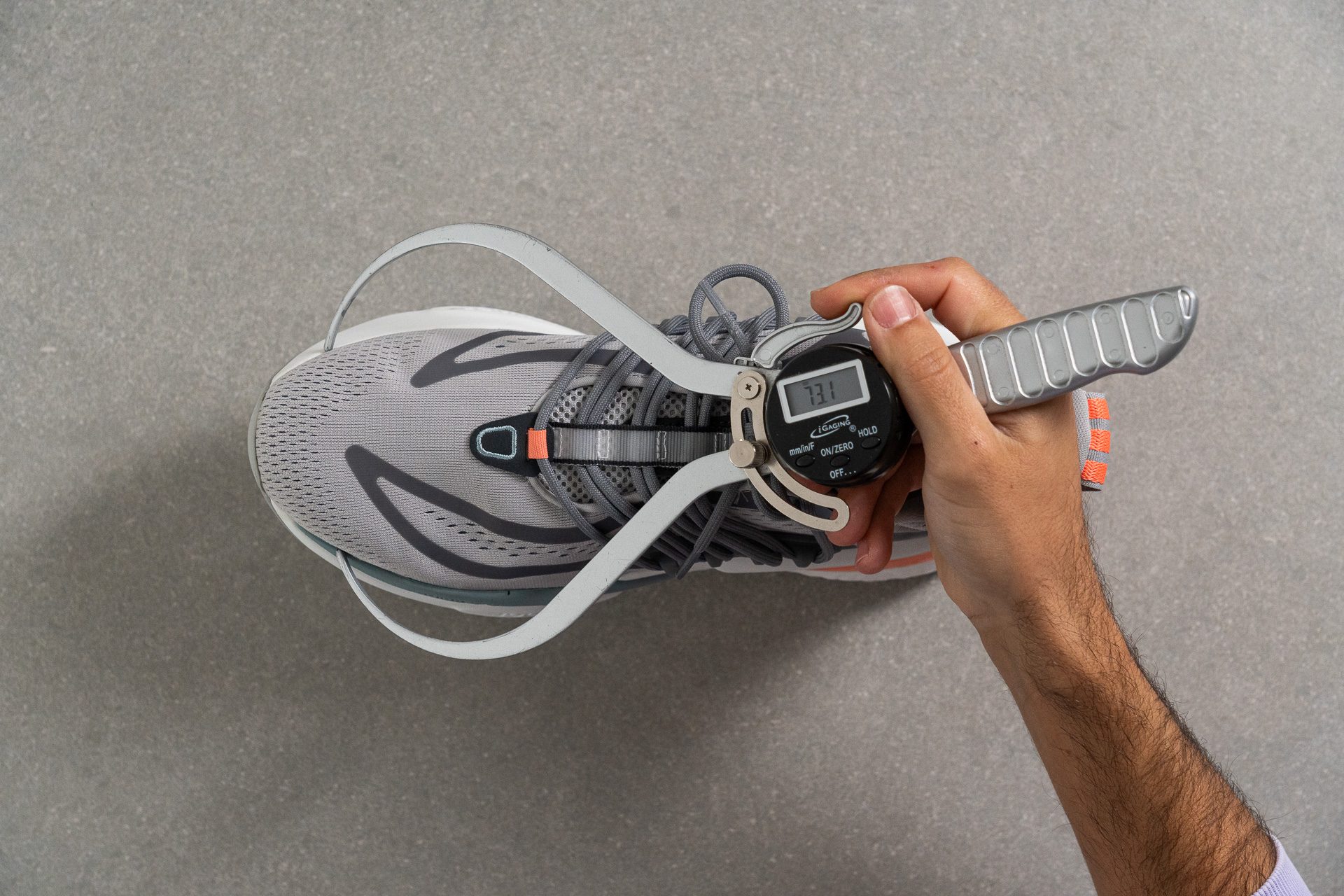
This test follows an older methodology, which is why you don't see recently tested shoes in the chart. Results from different methodologies can not be compared.
| Alphaboost V1 | 73.1 mm |
| Average | 75.0 mm |
Flexibility / Stiffness
If there is one thing that we didn't enjoy as much, it would be this shoe's pretty rigid structure. While it ensured stability, it also made it difficult to do more natural foot flexions.
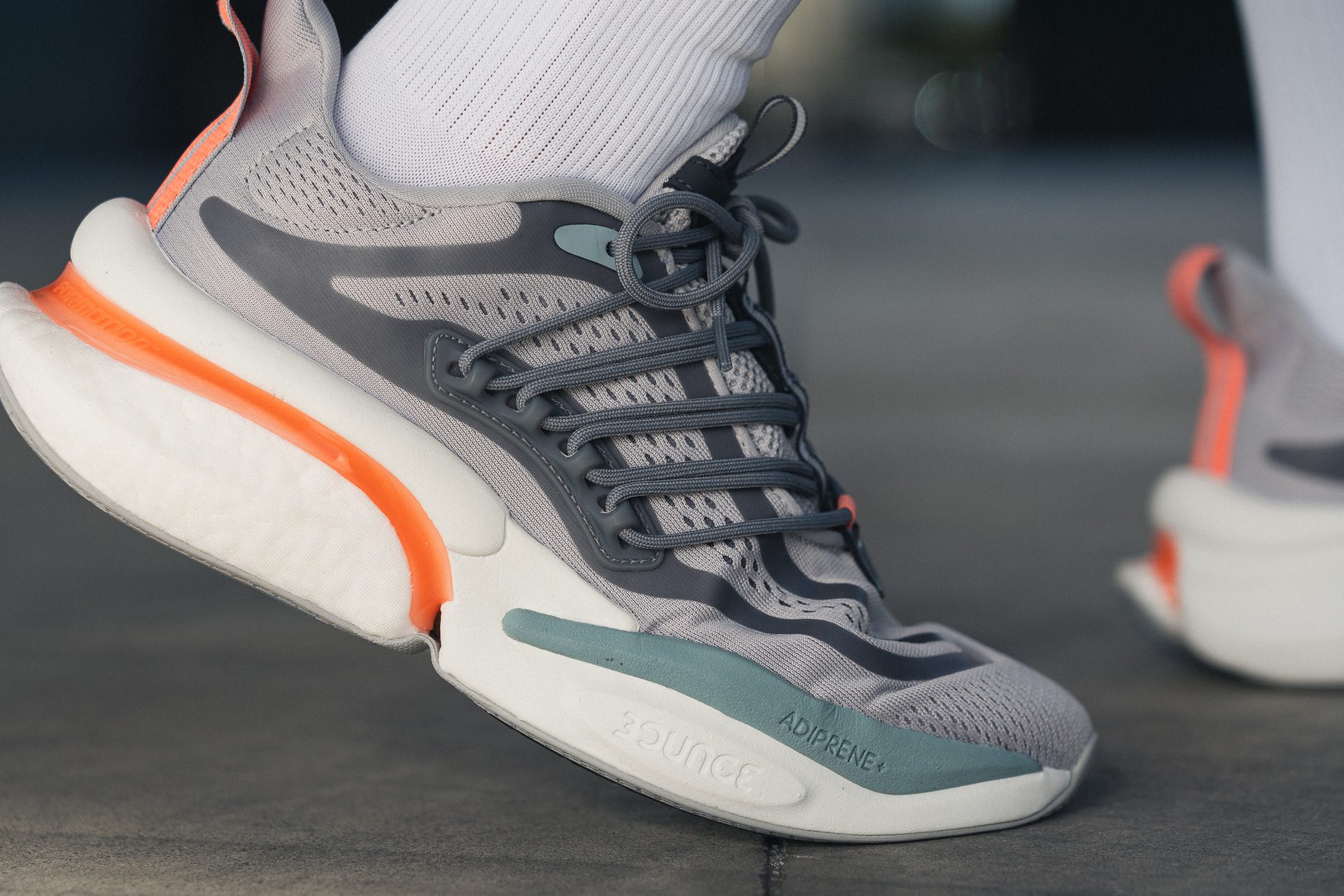
We conducted a flexibility test on the Alphaboost V1 and we saw that it needed a whopping 41.9N of force to bend at 90 degrees. This number if twice the average sneaker would need.
This test follows an older methodology, which is why you don't see recently tested shoes in the chart. Results from different methodologies can not be compared.
| Alphaboost V1 | 41.9N |
| Average | 23.3N |
Weight
Even if it offered a lot of durability and cushioning, the Adidas Alphaboost V1 still managed to be slightly lighter than average at 13.2 ounces or 373.0 grams. Walking in this shoe never felt like a chore because of its relatively light structure.
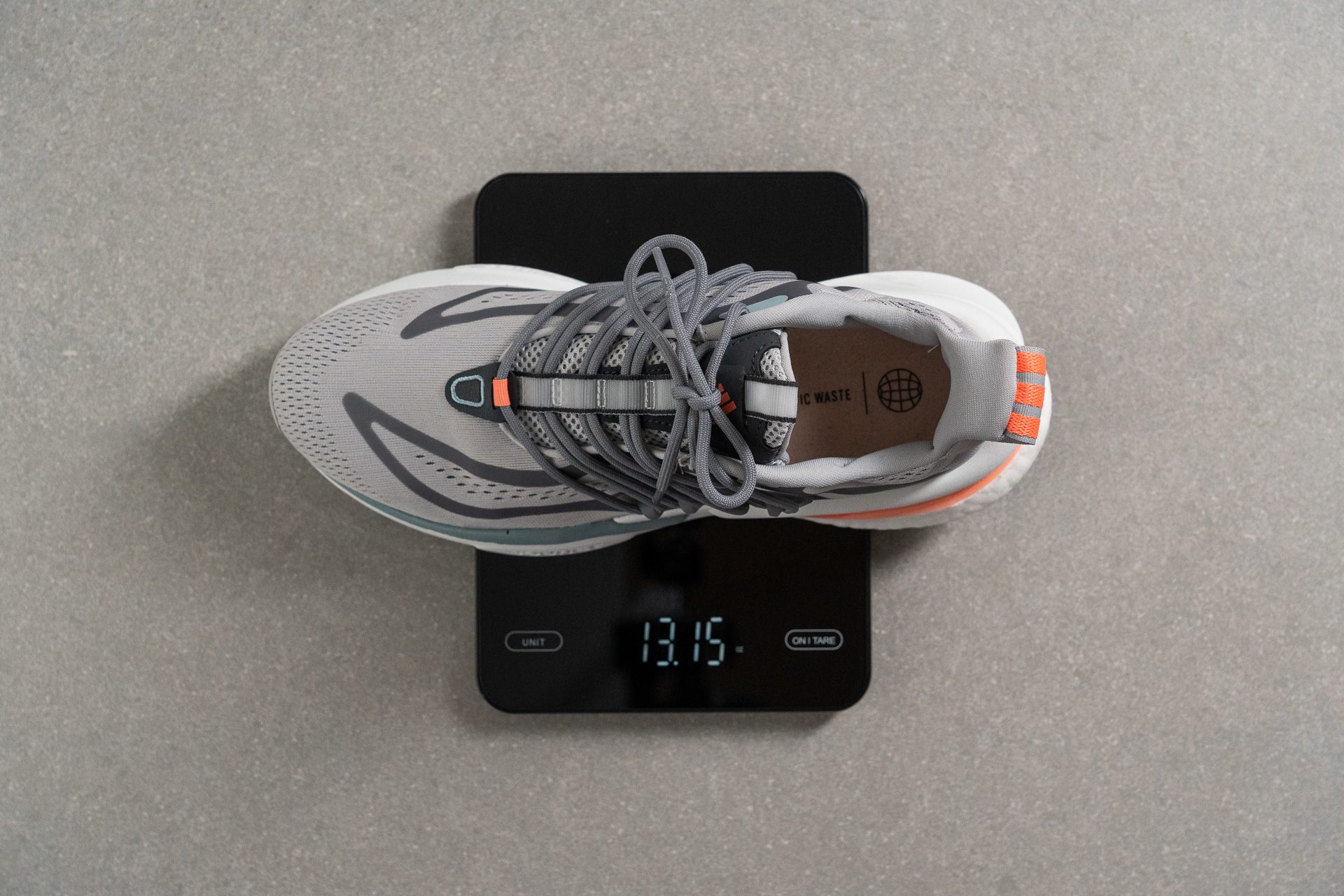
| Alphaboost V1 | 13.2 oz (373g) |
| Average | 13.8 oz (390g) |
Breathability
By looking at the Adidas Alphaboost V1, we already had the idea that it would be breathable. The upper material has a lot of ventilation holes.
True enough, we never felt hot while wearing this Adidas sneaker.
On a scale of 1 to 5 where 5 is the most breathable, we happily give this shoe a 4 during our smoke test. Our feet felt fresh for long periods and we never had to worry about wet smelly socks after our strolls.
We examined the upper material under the microscope. And we were happy with what the device showed us.
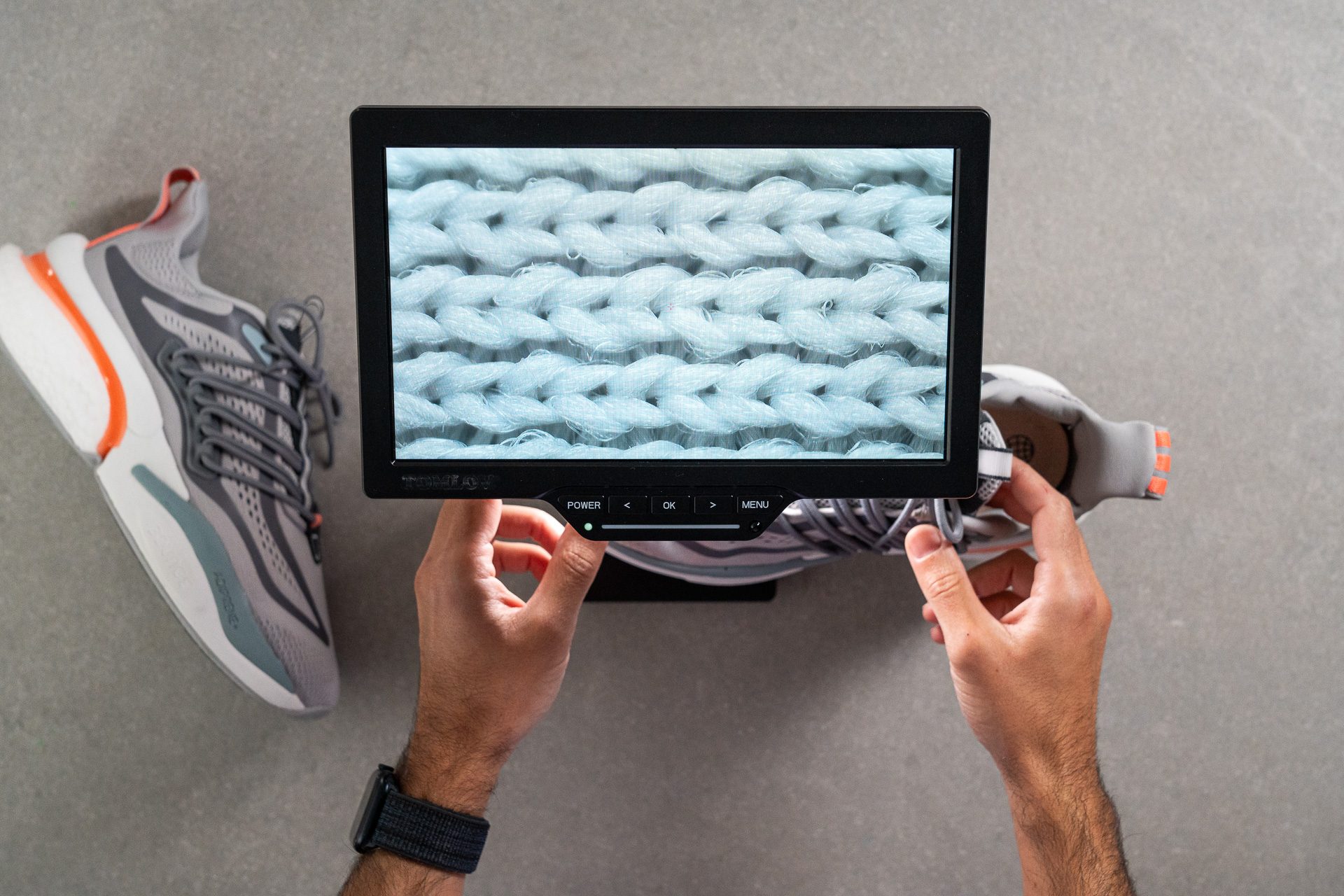
We saw that while the material is closely knit, it still has spaces in between the threads that allow easy passage of air.
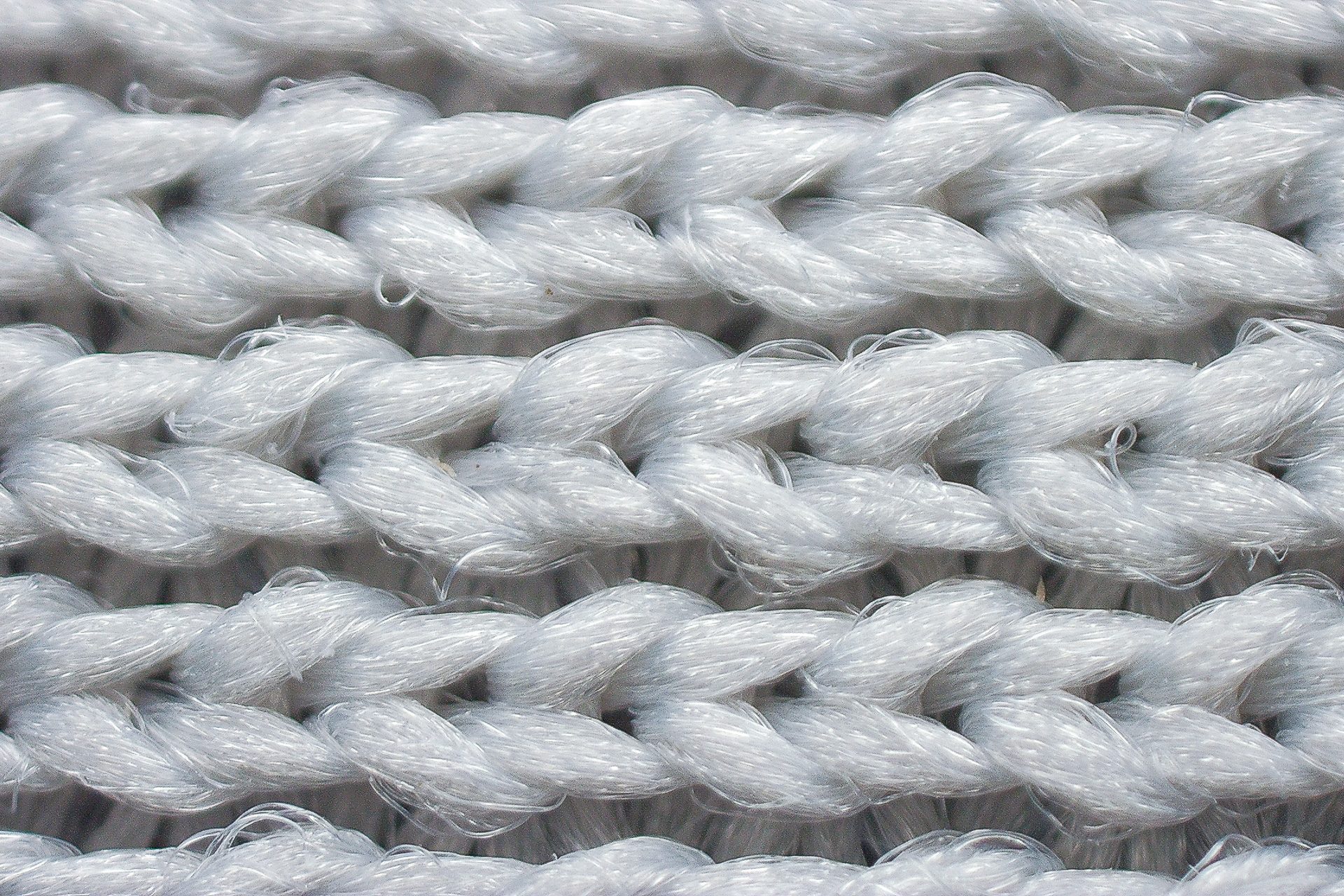
We also performed a quick transparency test, and it showed that a good part of the upper allowed light to pass through, which we consider an indicator of how well-ventilated this shoe is.
| Alphaboost V1 | 4 |
| Average | 3 |
Stability
Lateral stability test
Many people shy away from platform shoes because of stability problems. Fortunately, we encountered no such issues while wearing the Alphaboost V1 from Adidas.
Because of its pretty twist-resistant base (we will get to this more shortly), we never felt wobbly even when our movements started to become a bit shiftier and more aggressive.
Torsional rigidity
Foot twists are painful and we wished to avoid them at all costs. Good thing the Adidas Alphaboost V1 was a reliable ally in this regard. It scored a perfect 5 for torsional rigidity after we gave it a good manual twist in the lab.
| Alphaboost V1 | 5 |
| Average | 3.6 |
Heel counter stiffness
The heel counter surely felt durable, but it didn't have that much stiffness. It only got a 2 out of 5 in our manual stiffness test in the lab.
Fortunately, the heel's softness never came to a point where we felt our rearfoot to be not sufficiently supported. The less stiff heel counter just allowed more freedom of movement in that area, making it an ideal partner for long strolls around town.
| Alphaboost V1 | 2 |
| Average | 3.2 |
Midsole width - forefoot
Another thing that made this shoe notably stable is its fairly wide platform. Our caliper measured the midsole to be 117.8 mm wide at the forefoot, and this number is significantly higher than average.
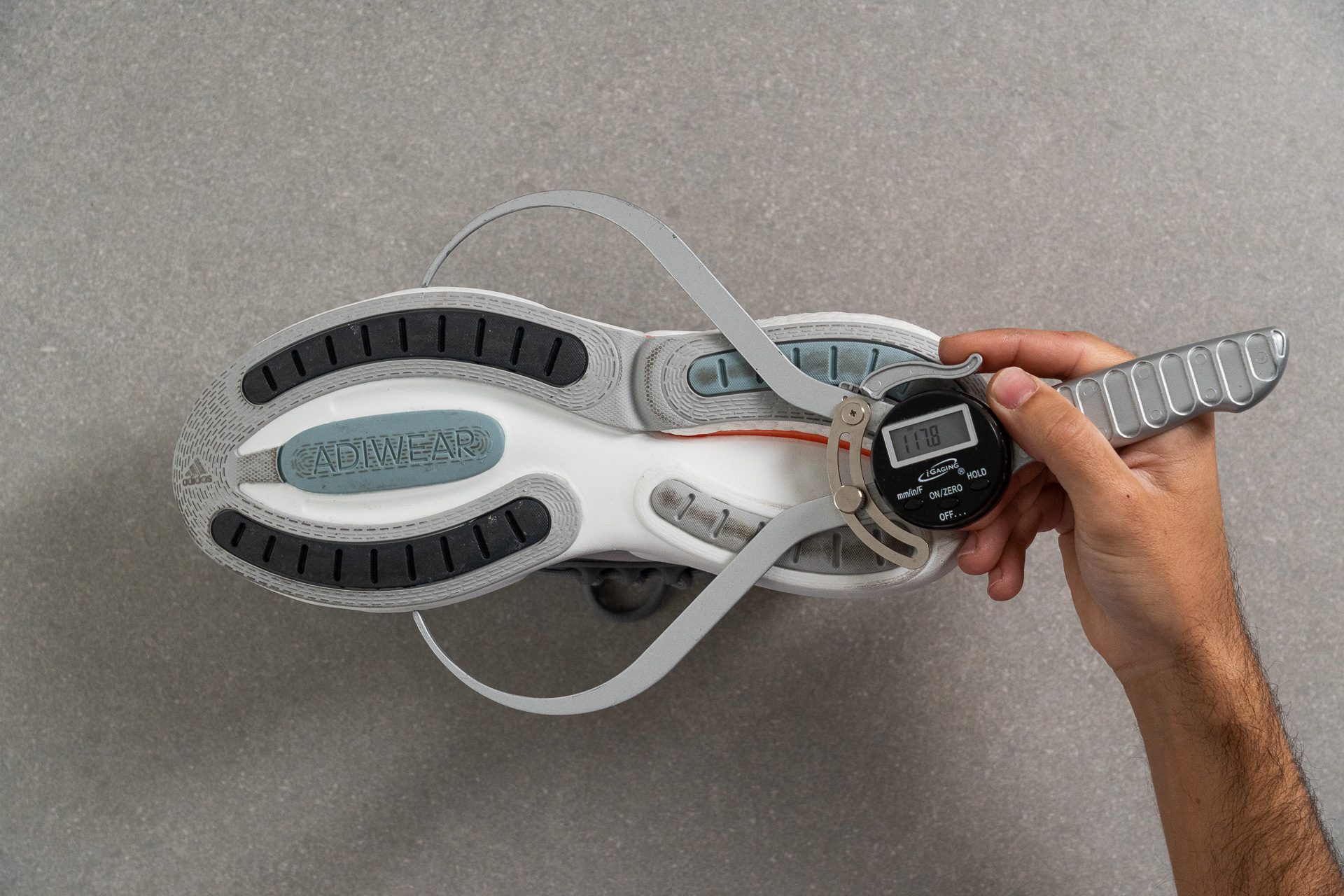
| Alphaboost V1 | 117.8 mm |
| Average | 108.9 mm |
Midsole width - heel
The story at the heel is even grander. Our caliper measured this area to be 102.9 mm wide. This adds around 20 mm extra space to the average. Yes, you read that right. 20 mm! We've tested a lot of sneakers, and the Adidas Alphaboost V1 is easily among the widest!
With that much space for splays and even momentary shifts, our feet surely couldn't go anywhere else but remain within the footbed.
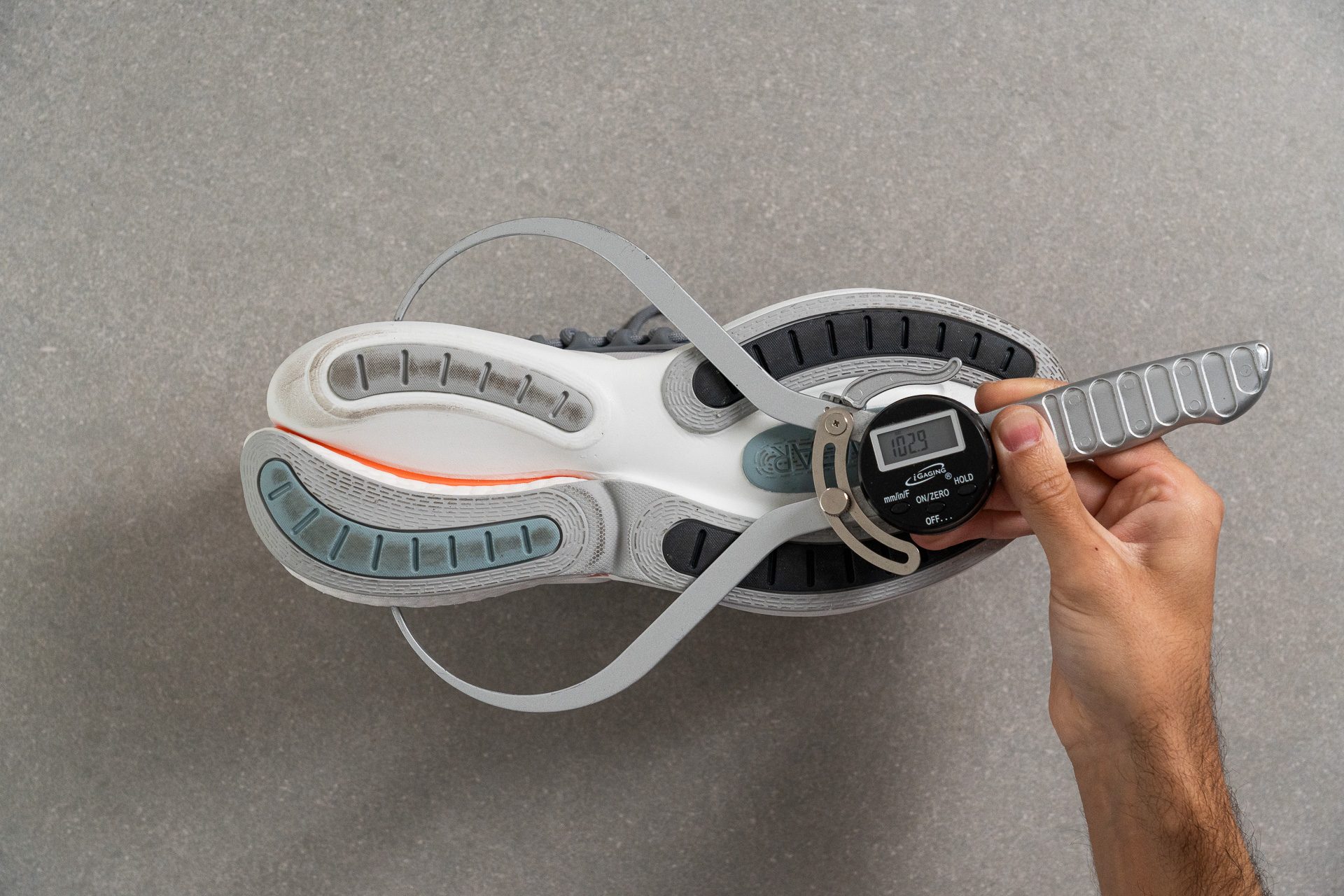
| Alphaboost V1 | 102.9 mm |
| Average | 84.0 mm |
Durability
Toebox durability
There are overlays on the upper, and they are there to enhance the shoe's durability. We subjected the overlaid parts to our standard Dremel drilling, and we were pretty satisfied with the results.
The layered materials displayed a decent amount of resistance to abrasion. Ultimately, we gave the shoe a solid 3 out of 5 for the durability of its toebox.
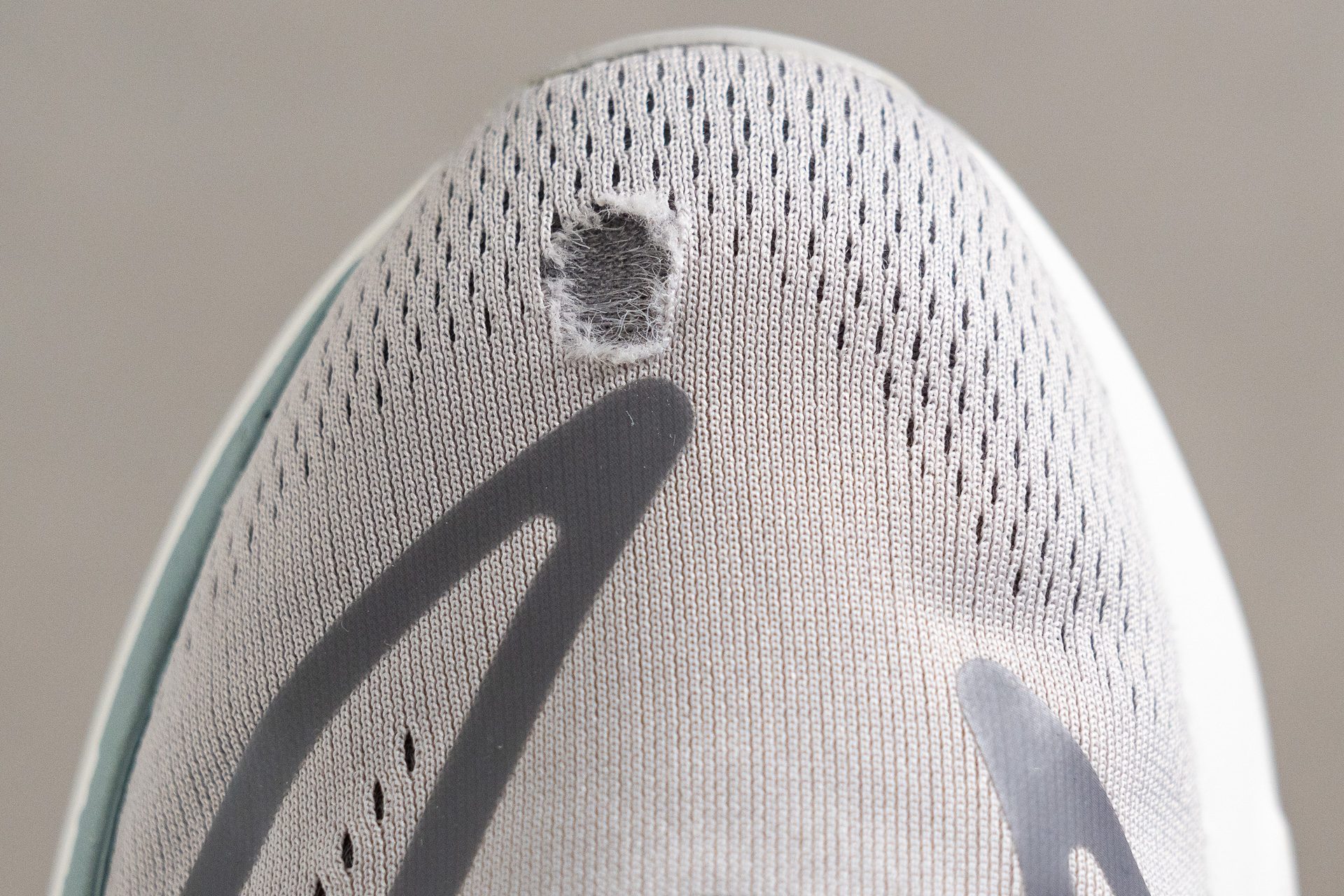
| Alphaboost V1 | 3 |
| Average | 3.7 |
Heel padding durability
The heel padding felt soft and pliable, that's why we were pleasantly surprised when it showed a lot of resistance during our Dremel test.
We took a photo of the immediate aftermath and the damage that the heel padding incurred is no more than just being disheveled. Hence, we give this part of the shoe a high score of 4 out of 5 for durability.
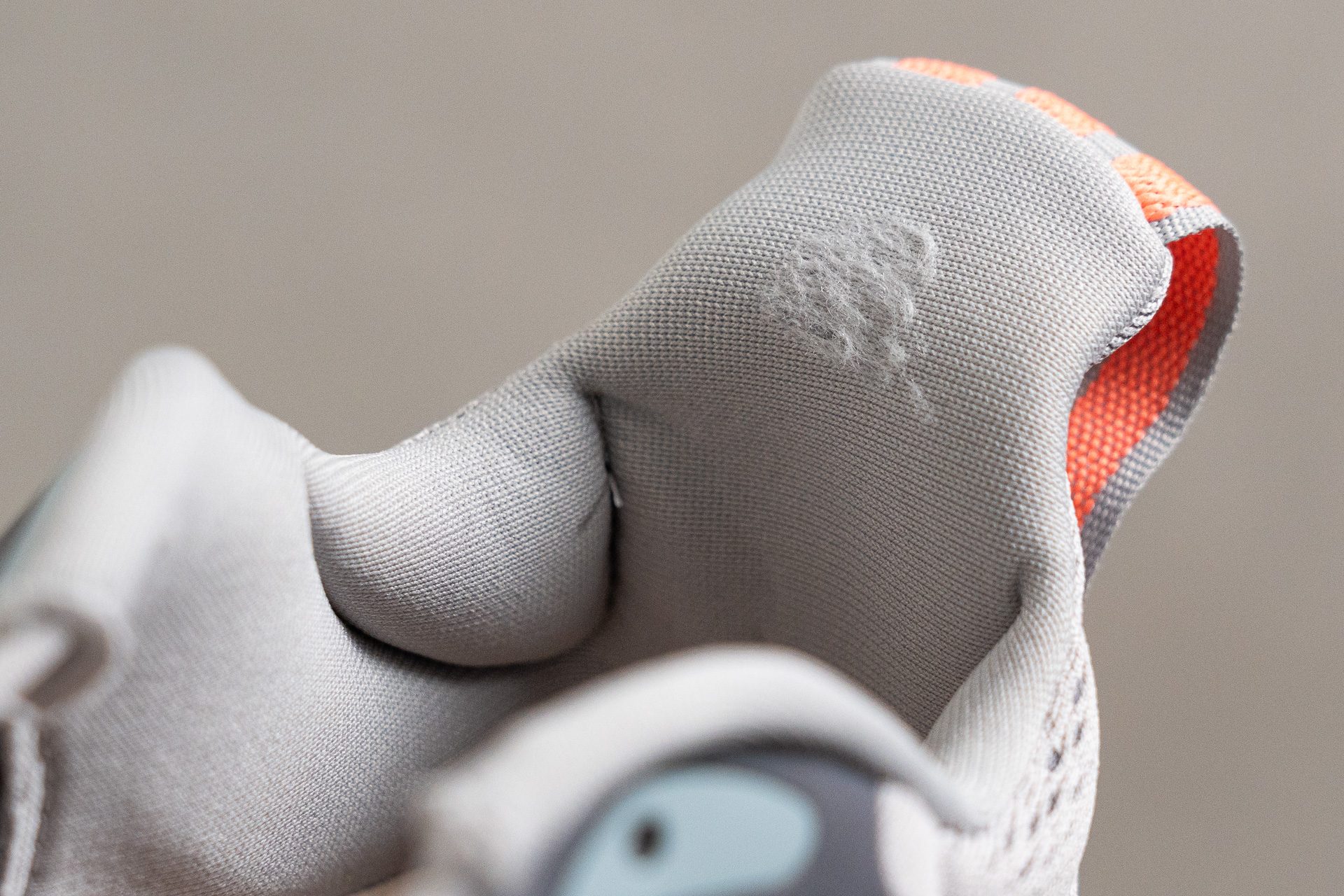
| Alphaboost V1 | 4 |
| Average | 3.2 |
Outsole hardness
We used an HC durometer to measure the hardness of the outsole in the lab. The device gave a rating of 89.3, which makes the Adidas Alphaboost V1's sole slightly harder than average.
Given this figure, we are pretty confident that the sole is going to resist abrasion for a while. We'd been running and skipping in this shoe during our tests, and it surely did hold up quite well.
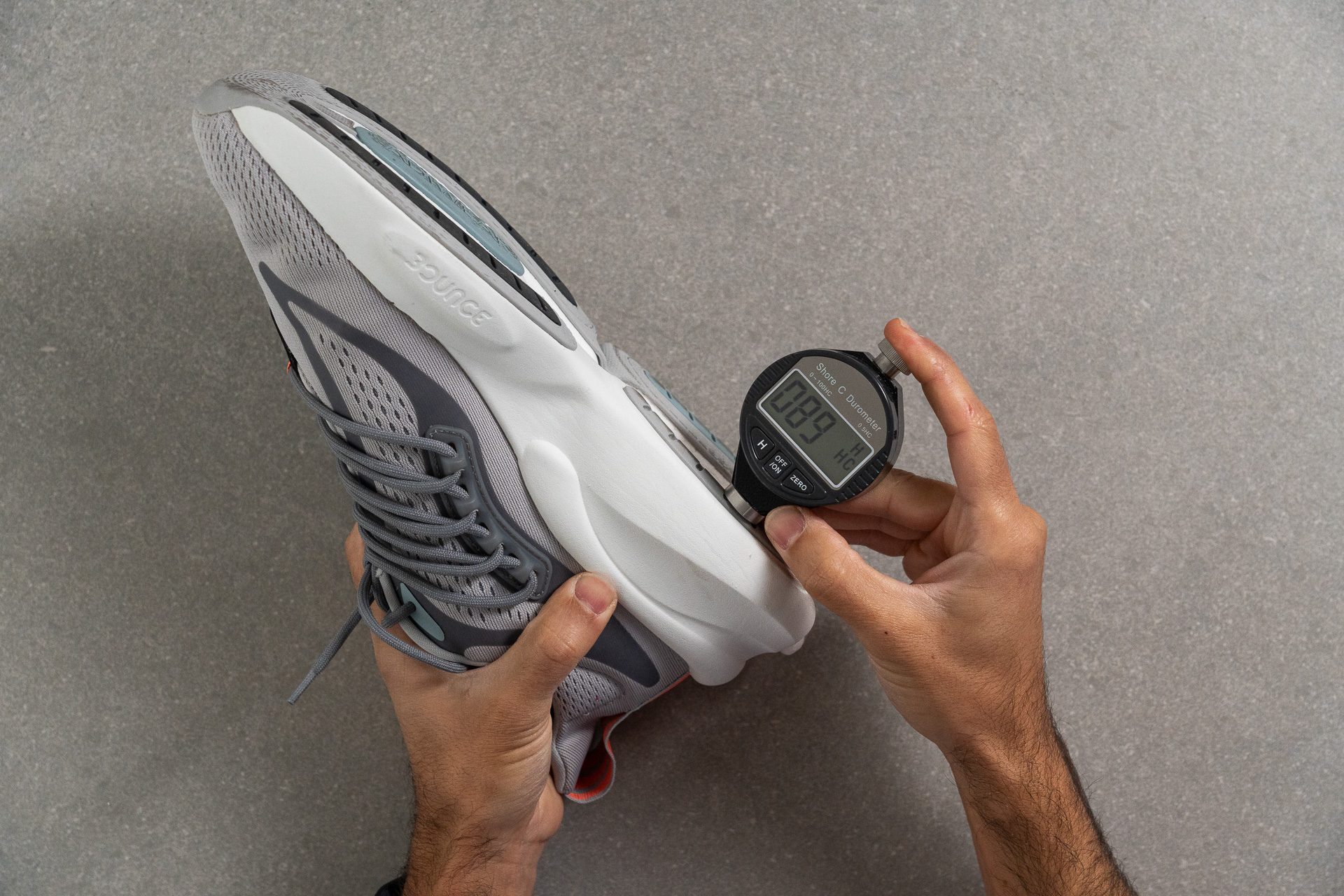
| Alphaboost V1 | 89.3 HC |
| Average | 85.7 HC |
Outsole durability
The durability of the outsole is definitely one of this shoe's highlights. We performed another Dremel drilling session on it, and we were so pleased that our tool barely left a mark on it.
To be quite specific, our Dremel drill only left a dent that is 0.4 mm deep. This figure is far lower than the average. It's pretty safe to say that the Alphaboost V1 is a shoe built for outdoor excursions.
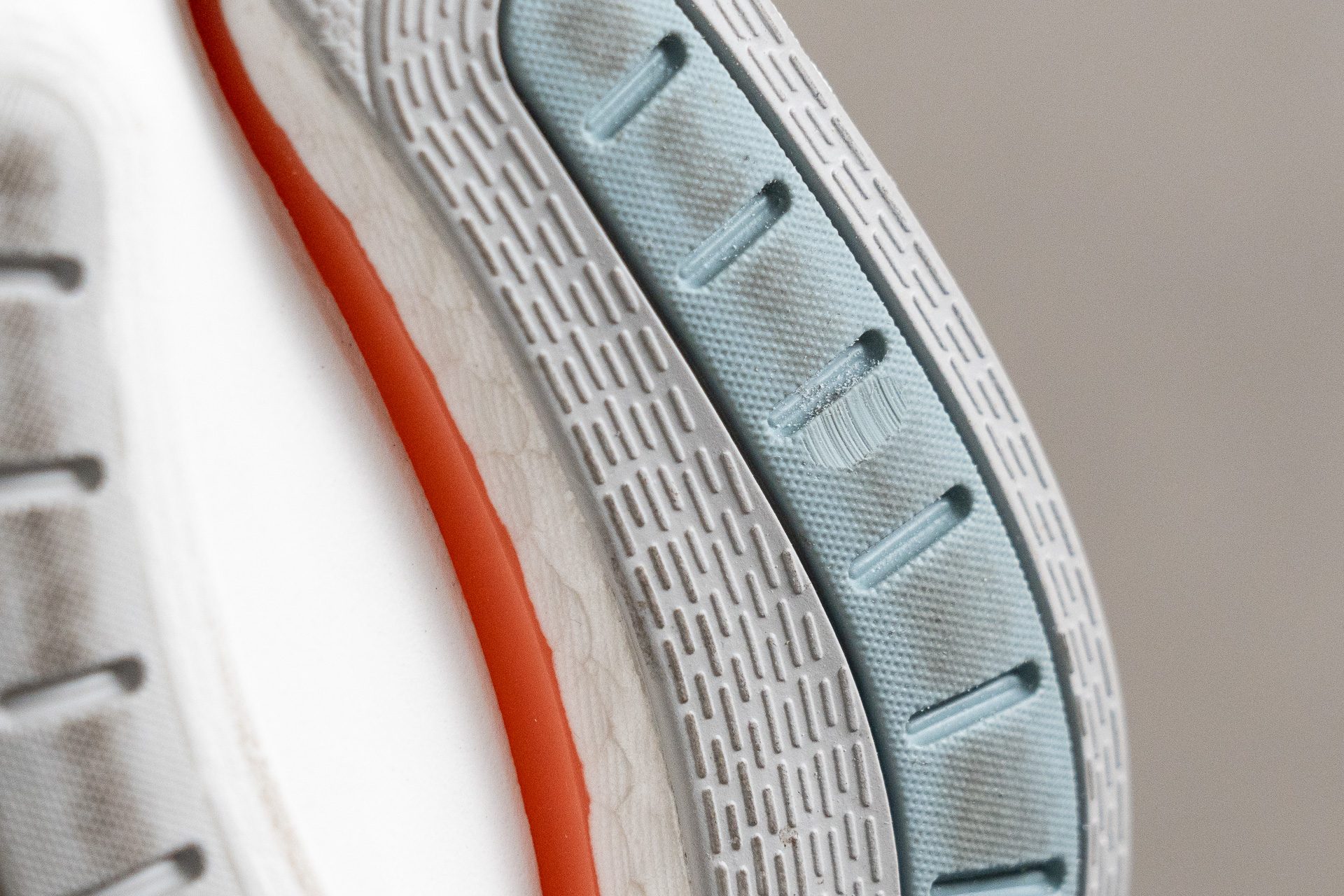
| Alphaboost V1 | 0.4 mm |
| Average | 1.1 mm |
Outsole thickness
Our caliper showed that the outsole is thinner than average at 4.2 mm. However, we do not worry about this because of its durability.
Sneakers like the PUMA RS-X may have thicker soles (its sole is 6.5 mm thick!), but they might still bottom out sooner because they are only half as durable (the Dremel test resulted in 0.8 mm damage) as the Adidas Alphaboost V1.
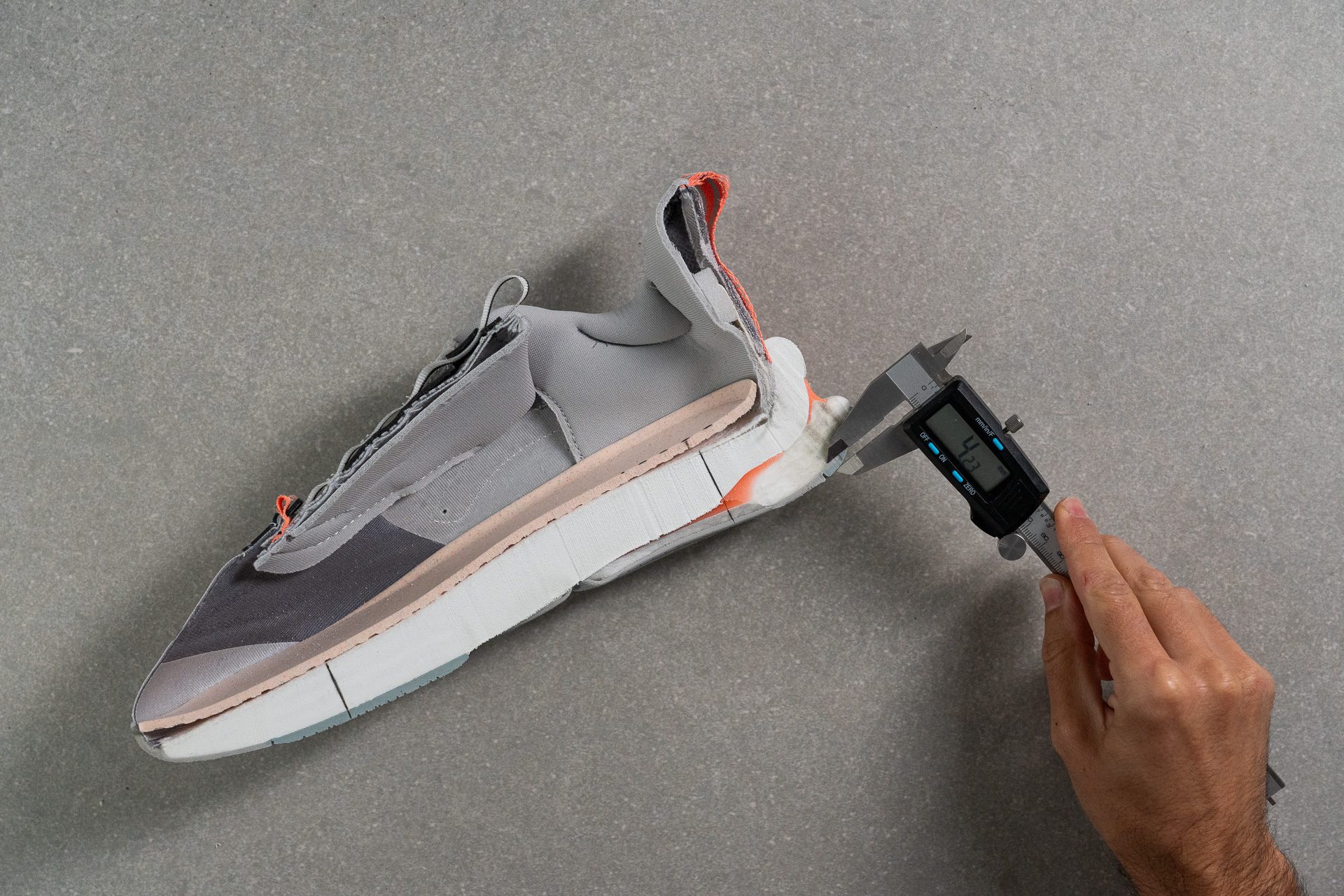
| Alphaboost V1 | 4.2 mm |
| Average | 5.3 mm |
Misc
Insole thickness
The insole is only 3.3 mm thick, and it's surely thinner than average. We did not worry about this because the midsole was already so thick, and it already did most of the job.
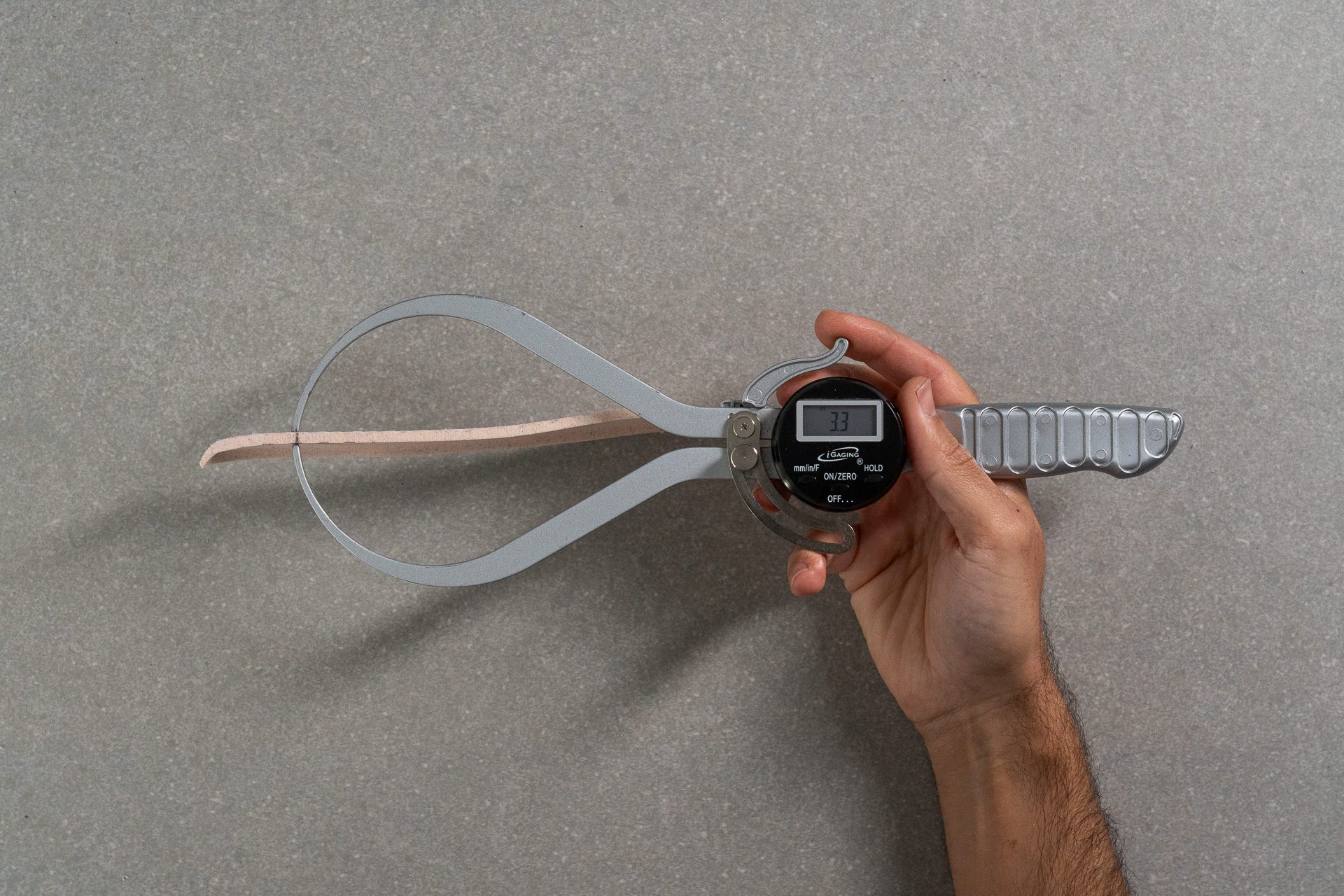
| Alphaboost V1 | 3.3 mm |
| Average | 5.1 mm |
Removable insole
Just like many other sneakers, the insole of the Adidas Alphaboost V1 is removable. It was easy to get rid of it when we needed to wear orthotics and other forms of shoe inserts.
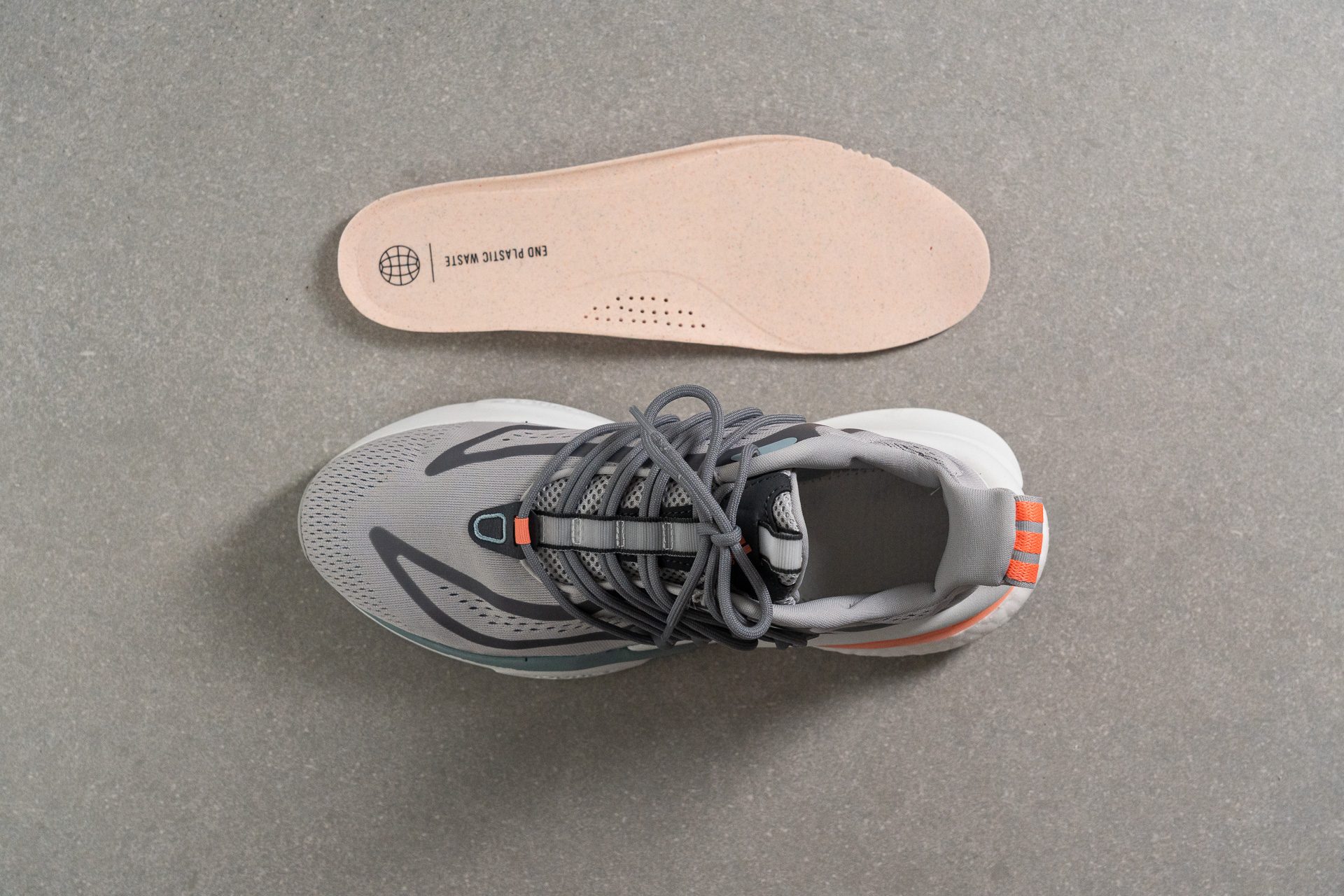
| Alphaboost V1 | Yes |
Reflective elements
The Adidas Alphaboost V1 does not have any reflective elements to increase nighttime visibility.
| Alphaboost V1 | No |
Tongue padding
The tongue is just as thickly padded as average. Our caliper measured the padding to be 6.3 mm thick.
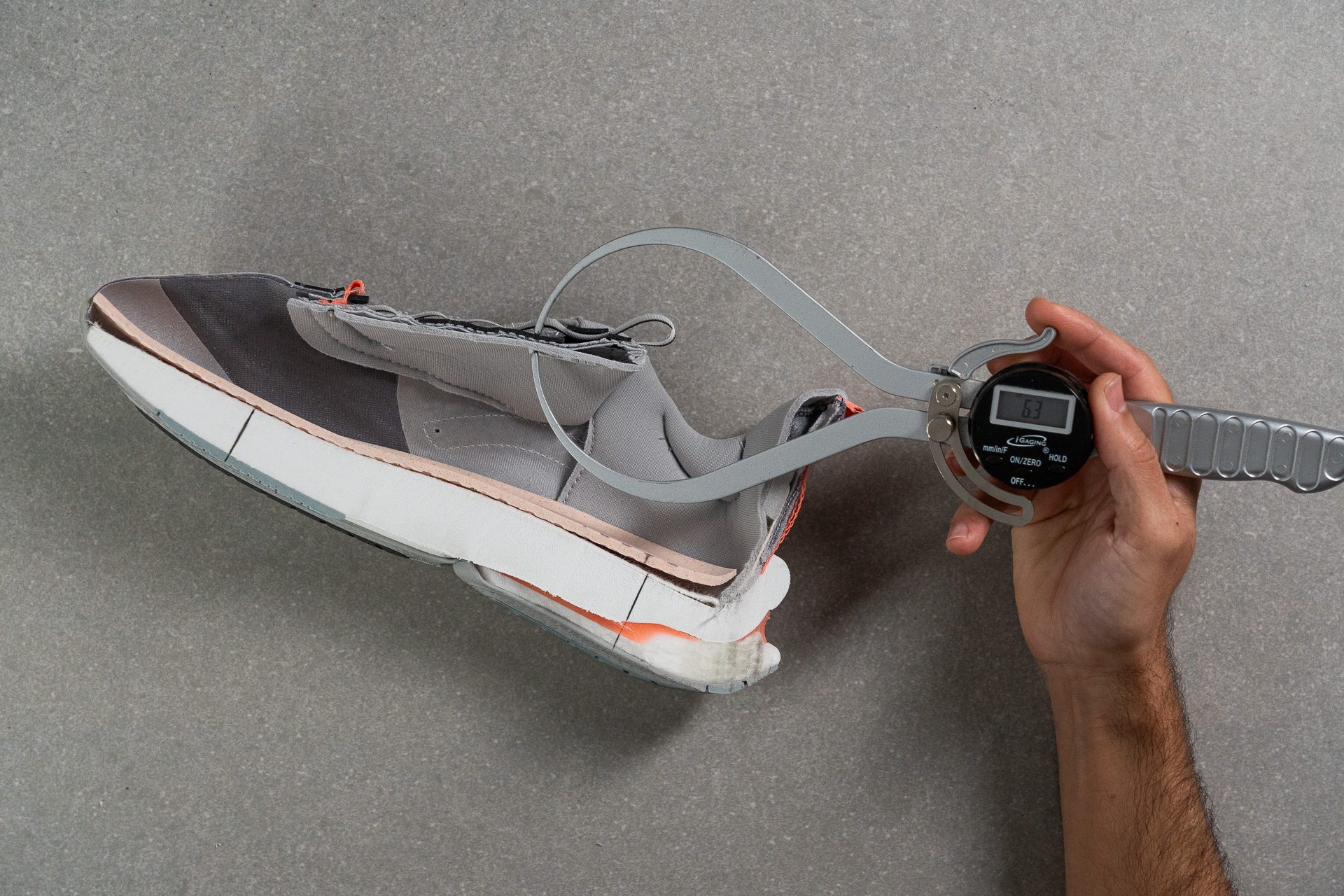
| Alphaboost V1 | 6.3 mm |
| Average | 9.6 mm |
Tongue: gusset type
The tongue is non-gusseted and we are thankful for it. We have already seen that the whole shoe is pretty rigid, so it would have been too constricting if the tongue still sported a gusseted design.
The Alphaboost V1's not-so-stiff heel and non-gusseted tongue gave us the give that we needed to still move comfortably when the rest of the shoe was pretty inflexible.
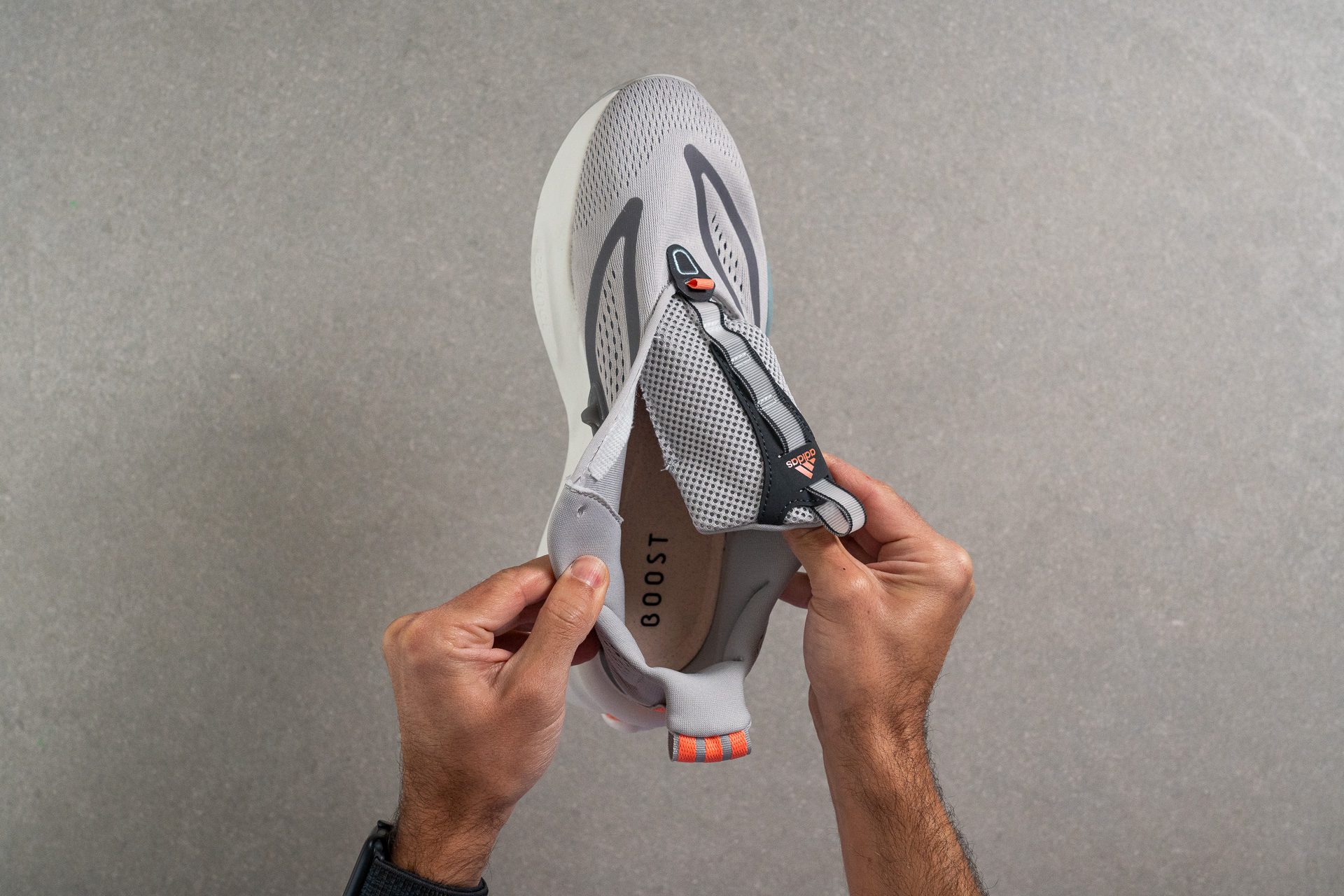
| Alphaboost V1 | None |
Heel tab
Putting this shoe on and taking it off is made even easier by its finger-loop heel tab.
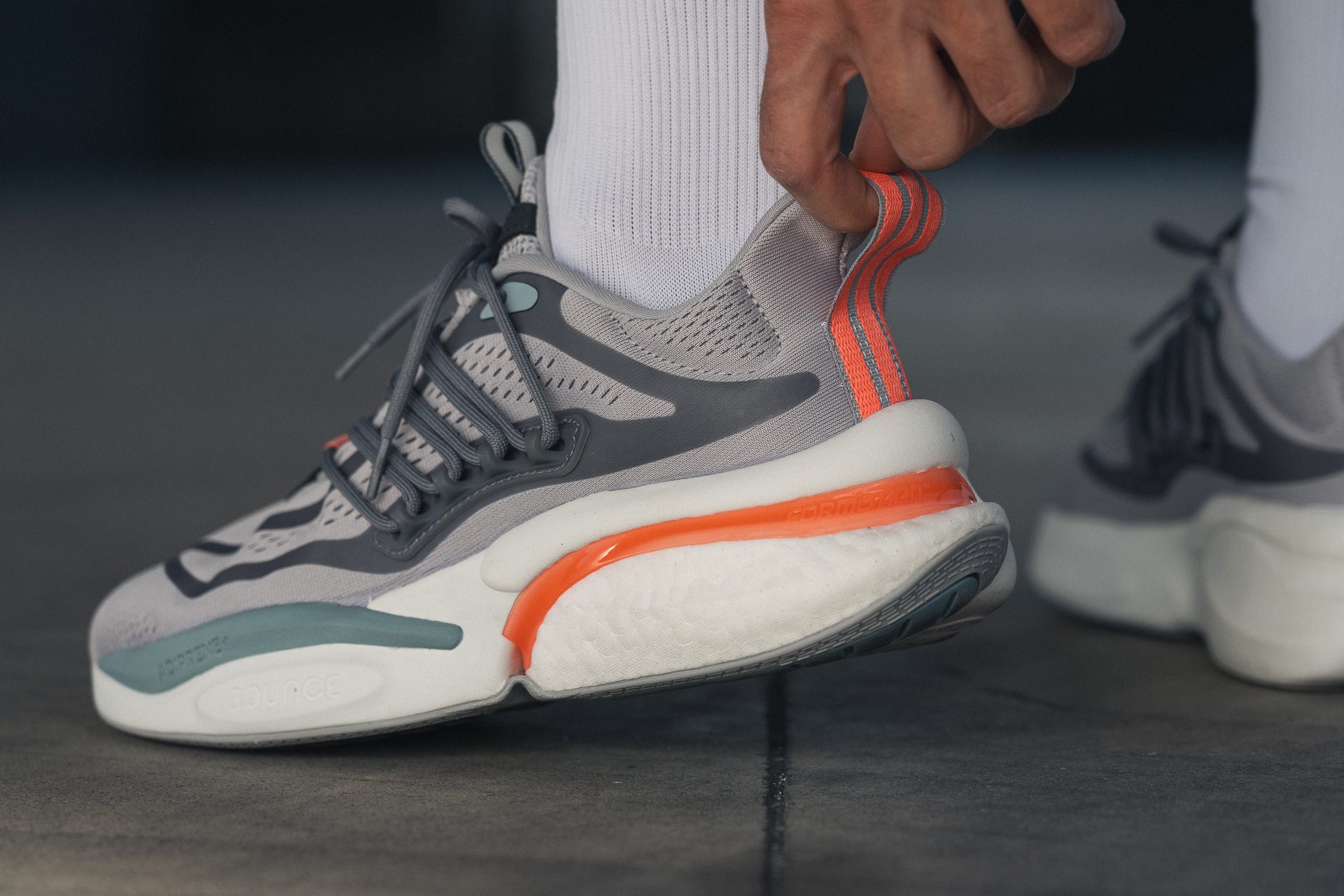
| Alphaboost V1 | Finger loop |

